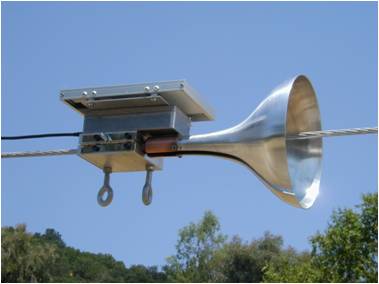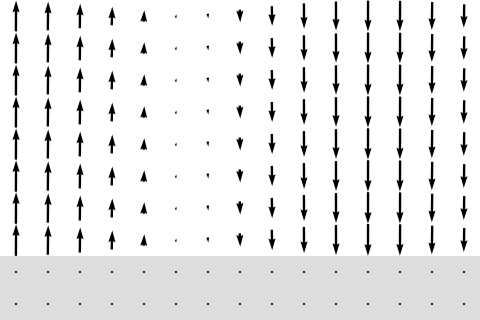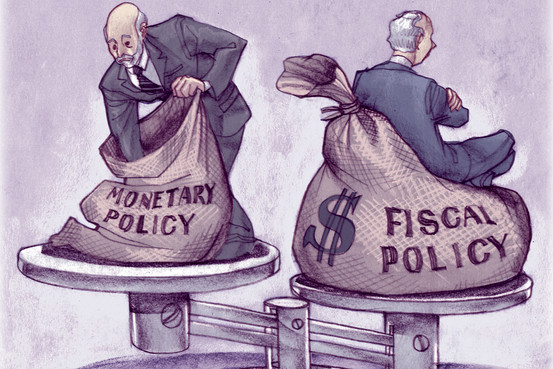{Circular No. 1248 1 June 22. 1933 J
BANKING ACT OF 1933

To provide for the safer and more effective use of the assets of banks, to regulate interbank control, to prevent the undue diversion of funds into speculative operations
For your information we enclose a copy of the Banking Act of 1933, approved June 16, 1933, commonly known as the Glass Act. We enclose also a copy of a summary of the principal provisions of that act. This is intended merely as a summary of the law and not as an interpretation thereof or commentary thereon. George L. Harrison, Governor. [Public — No. 66 — 73d Congress] [H.R. 5661] AN ACT
To provide for the safer and more effective use of the assets of banks, to regulate interbank control, to prevent the undue diversion of funds into speculative operations, and for other purposes.
Be it enacted by the Senate and House of Representatives of the United States of America in Congress assembled* That the short title of this Act shall be the " Banking Act of 1933." Sec. 2. As used in this Act and in any provision of law amended by this Act —(a) The terms " banks ", " national bank ", " national banking association ", " member bank ", " board ", " district ", and " reserve bank " shall have the meanings assigned to them in section 1 of the Federal Reserve Act, as amended.
(b) Except where otherwise specifically provided, the term " affili- ate " shall include any corporation, business trust, association, or other similar organization —
(1) Of which a member bank, directly or indirectly, owns or controls either a majority of the voting shares or more than 50 per centum of the number of shares voted for the election of its directors, trustees, or other persons exercising similar functions at the preceding election, or controls in any manner the election of a majority of its directors, trustees, or other persons exercising similar functions; or
(2) Of which control is held, directly or indirectly, through stock ownership or in any other manner, by the shareholders of a member bank who own or control either a majority of the share3 of such bank or more than 50 per centum of the number of shares voted for the election of directors of such bank at the preceding election, or by trustees for the benefit of the shareholders of any such bank; or
(3) Of which a majority of its directors, trustees, or other persons exercising similar functions are directors of any one member bank.
(c) The term " holding company affiliate " shall include any cor- poration, business trust, association, or other similar organization —
(1) Which owns or controls, directly or indirectly, either a majority of the shares of capital stock of a member bank or more than 50 per centum of the number of shares voted for the election of directors of any one bank at the preceding election, or controls in any manner the election of a majority of the directors of any one bank; or
(2) For the benefit of whose shareholders or members all or substantially all the capital stock of a member bank is held by trustees.
2 [Pub. 66.] Sec. 3. (a) The fourth paragraph after paragraph " Eighth " of section 4 of the Federal Reserve Act, as amended (U.S.C., title 12, sec. 301), is amended to read as follows:
" Said board of directors shall administer the affairs of said bank fairly and impartially and without discrimination in favor of or against any member bank or banks and may, subject to the provi- sions of law and the orders of the Federal Reserve Board, extend to each member bank such discounts, advancements, and accommoda- tions as may be safely and reasonably made with due regard for the claims and demands of other member banks, the maintenance of sound credit conditions, and the accommodation of commerce, indus- try, and agriculture. The Federal Reserve Board may prescribe regulations further defining within the limitations of this Act the 'conditions under which discounts, advancements, and the accommo- 'dations may be extended to member banks. Each Federal reserve bank shall keep itself informed of the general character and amount of the loans and investments of its member banks with a view to ascertaining whether undue use is being made of bank credit for the speculative carrying of or trading in securities, real estate, or commodities, or for any other purpose inconsistent with the mainte- nance of sound credit conditions; and, in determining whether to grant or refuse advances, rediscounts or other credit accommodations, the Federal reserve bank shall give consideration to such informa- tion. The chairman of the Federal reserve bank shall report to the Federal Reserve Board any such undue use of bank credit by any member bank, together with his recommendation. Whenever, in the judgment of the Federal Reserve Board, any member bank is making such undue use of bank credit, the Board may, in its discretion, after reasonable notice and an opportunity for a hearing, suspend such bank from the use of the credit facilities of the Federal Reserve System and may terminate such suspension or may renew it from time to time."(b) The paragraph of section 4 of the Federal Reserve Act, as amended (U.S.C., title 12, sec. 304), which commences with the words " The Federal Reserve Board shall classify " is amended by inserting before the period at the end thereof a colon and the following: "Provided, That whenever any two or more member banks within the same Federal reserve district are affiliated with the same holding company affiliate, participation by such member banks in any such nomination or election shall be confined to one of such banks, which may be designated for the purpose by such holding company affiliate."
Sec. 4. The first paragraph of section 7 of the Federal Reserve Act, as amended (U.S.C., title 12, sec. 289), is amended, effective July 1, 1932, to read as follows :
"After all necessary expenses of a Federal reserve bank shall have been paid or provided for, the stockholders shall be entitled to receive an annual dividend of 6 per centum on the paid-in capital stock, which dividend shall be cumulative. After the aforesaid dividend claims have been fully met, the net earnings shall be paid into the surplus fund of the Federal reserve bank."
Sec. 5. (a) The first paragraph of section 9 of the Federal Reserve I Act, as amended (U.S.C., title 12, sec. 321 ; Supp. VI, title 12, sec. 821), is amended by inserting immediately after the words "United
[Ptm.64.1 3States " a comma and the following : " including Morris Plan banks and other incorporated banking institutions engaged in similar business."
(b) The second paragraph of section 9 of the Federal Reserve Act, as amended, is amended by adding at the end thereof the following : "Provided, however, That nothing herein contained shall prevent any State member bank from establishing and operating branches in the United States or any dependency or insular possession thereof or in any foreign country, on the same terms and conditions and subject to the same limitations and restrictions as are applicable to the establishment of branches by national banks."
(c) Section 9 of the Federal Reserve Act, as amended (U.S.C., title 12, sees. 321-331; Supp. VI, title 12, sees. 321-332), is further amended by adding at the end thereof the following new paragraphs :
"Any mutual savings bank having no capital stock (including any other banking institution the capital of which consists of weekly or other time deposits which are segregated from all other deposits and are regarded as capital stock for the purposes of taxation and the declaration of dividends), but having surplus and undivided profits not less than the amount of capital required for the organization of a national bank in the same place, may apply for and be admitted to membership in the Federal Reserve System in the same manner and subject to the same provisions of law as State banks and trust com- panies, except that any such savings bank shall subscribe for capital stock of the Federal reserve bank in an amount equal to six-tenths of 1 per centum of its total deposit liabilities as shown by the most recent report of examination of such savings bank preceding its admission to membership. Thereafter such subscription shall be adjusted semiannually on the same percentage basis in accordance with rules and regulations prescribed by the Federal Reserve Board. If any such mutual savings bank applying for membership is not permitted by the laws under which it was organized to purchase stock in a Federal reserve bank, it shall, upon admission to the system, deposit with the Federal reserve bank an amount equal to the amount which it would have been required to pay in on account of a subscription to capital stock. Thereafter such deposit shall be adjusted semi- annually in the same manner as subscriptions for stock. Such deposits shall be subject to the same conditions with respect to repay- ment as amounts paid upon subscriptions to capital stock by other member banks and the Federal reserve bank shall pay interest thereon at the same rate as dividends are actually paid on outstand- ing shares of stock of such Federal reserve bank. If the laws under which any such savings bank was organized be amended so as to authorize mutual savings banks to subscribe for Federal reserve bank stock, such savings bank shall thereupon subscribe for the appropriate amount of stock in the Federal reserve bank, and the deposit here- inbefore provided for in lieu of payment upon capital stock shall be applied upon such subscription. If the laws under which any such savings bank was organized be not amended at the next session of the legislature following the admission of such savings bank to membership so as to authorize mutual savings banks to purchase Federal reserve bank stock, or if such laws be so amended and such bank fail within six months thereafter to purchase such stock, all
4 [POB. 66.1of its rights and privileges as a member bank shall be forfeited and its membership in the Federal Reserve System shall be terminated in the manner prescribed elsewhere in this section with respect to State member banks and trust companies. Each such mutual savings bank shall comply with all the provisions of law applicable to State member banks and trust companies, with the regulations of the Fed- eral Reserve Board and with the conditions of membership prescribed for such savings bank at the time of admission to membership, except as otherwise hereinbefore provided with respect to capital stock.
" Each bank admitted to membership under this section shall obtain from each of its affiliates other than member banks and furnish to the Federal reserve bank of its district and to the Federal Reserve Board not less than three reports during each year. Such reports shall be in such form as the Federal Reserve Board may prescribe, shall be verified by the oath or affirmation of the president or such other officer as may be designated by the board of directors of such affiliate to verify such reports, and shall disclose the infor- mation hereinafter provided for as of dates identical with those fixed by the Federal Reserve Board for reports of the condition of the affiliated member bank. Each such report of an affiliate shall be transmitted as herein provided at the same time as the corre- sponding report of the affiliated member bank, except that the Federal Reserve Board may, in its discretion, extend such time for good cause shown. Each such report shall contain such information as in the judgment of the Federal Reserve Board shall be necessary to disclose fully the relations between such affiliate and such bank and to enable the Board to inform itself as to the effect of such relations upon the affairs of such bank. The reports of such affiliates shall be published by the bank under the same conditions as govern its own condition reports.
" Any such affiliated member bank may be required to obtain from any such affiliate such additional reports as in the opinion of its Federal reserve bank or the Federal Reserve Board may be necessary in order to obtain a full and complete knowledge of the condition of the affiliated member bank. Such additional reports shall be transmitted to the Federal reserve bank and the Federal Reserve Board and shall be in such form as the Federal Reserve Board may prescribe.
"Any such affiliated member bank which fails to obtain from any of its affiliates and furnish any report provided for by the two preceding paragraphs of this section shall be subject to a penalty of $100 for each day during which such failure continues, which, by direction of the Federal Reserve Board, may be collected, by suit or otherwise, by the Federal reserve bank of the district in which such member bank is located. For the purposes of this paragraph and the two preceding paragraphs of this section, the term ' affiliate ' shall include holding company affiliates as well as other affiliates. " State member banks shall be subject to the same limitations and conditions with respect to the purchasing, selling, underwriting, and holding of investment securities and stock as are applicable in the case of national banks under paragraph ' Seventh ' of section 5136 of the Revised Statutes, as amended.
"After one year from the date of the enactment of the Banking Act of 1933, no certificate representing the stock of any State member [Pen. 66.] 5bank shall represent the stock of any other corporation, except a member bank or a corporation existing on the date this paragraph takes effect engaged solely in holding the bank premises of such State member bank, nor shall the ownership, sale, or transfer of any certificate representing tbe stock of any such bank be conditioned in any manner whatsoever upon the ownership, sale, or transfer of a certificate representing the stock of any other corporation, except a member bank.
" Each State member bank affiliated with a holding company affiliate shall obtain from such holding company affiliate, within such time as the Federal Reserve Board shall prescribe, an agree- ment that such holding company affiliate shall be subject to the same conditions and limitations as are applicable under section 5144 of the Revised Statutes, as amended, in the case of holding company affiliates of national banks. A copy of each such agreement shall be filed with the Federal Reserve Board. Upon the failure of a State member bank affiliated with a holding company affiliate to obtain such an agreement within the time so prescribed, the Federal Reserve Board shall require such bank to surrender its stock in the Federal reserve bank and to forfeit all rights and privileges of membership in the Federal Reserve System as provided in this section. When- ever the Federal Reserve Board shall have revoked the voting permit of any such holding company affiliate, the Federal Reserve Board may, in its discretion, require any or all State member banks affiliated with such holding company affiliate to surrender their stock in the Federal reserve bank and to forfeit all rights and privileges of membership in the Federal Reserve System as provided in this section.
" In connection with examinations of State member banks, exam- iners selected or approved by the Federal Reserve Board shall make such examinations of the affairs of all affiliates of such banks as shall be necessary to disclose fully the relations between such banks and their affiliates and the effect of such relations upon the affairs of such banks. The expense of examination of affiliates of any State member bank may, in the discretion of the Federal Reserve Board, be assessed against such bank and, when so assessed, shall be paid by such bank. In the event of the refusal to give any information requested in the course of the examination of any such affiliate, or in the event of the refusal to permit such examination, or in the event of the refusal to pay any expense so assessed, the Federal Reserve Board may, in its discretion, require any or all State member banks affiliated with such affiliate to surrender their stock in the Federal reserve bank and to forfeit all rights and privileges of membership in the Federal Reserve System, as provided in this section."
Sec. 6. (a) The second paragraph of section 10 of the Federal Reserve Act, as amended (U.S.C., title 12, sec. 242), is amended to read as follows:
" The Secretary of the Treasury and the Comptroller of the Cur- rency shall be ineligible during the time they are in office and for two years thereafter to hold any office, position, or employment in any member bank. The appointive members of the Federal Reserve Board shall be ineligible during the time they are in office and for two years thereafter to hold any office, position, or employment in
b (PVB. 66.]any member bank, except that this restriction shall not apply to a member who has served the full term for which he was appointed. Upon the expiration of the term of any appointive member of the Federal Reserve Board in office when this paragraph as amended takes effect, the President shall fix the term of the successor to such member at not to exceed twelve years, as designated by the President at the time of nomination, but in such manner as to provide for the expiration of the term of not more than one appointive member in any two-year period, and thereafter each appointive member shall hold office for a term of twelve years from the expiration of the term of his predecessor. Of the six persons thus appointed, one shall be designated by the President as governor and one as vice governor of the Federal Reserve Board. The governor of the Federal Reserve Board, subject to its supervision, shall be its active executive officer. Each member of the Federal Reserve Board shall within fifteen days after notice of appointment make and subscribe to the oath of office."
(b) The fourth paragraph of section 10 of the Federal Reserve Act, as amended (U.S.C., title 12, sec. 244), is amended to read as follows :
" The principal offices of the Board shall be in the District of Columbia. At meetings of the Board the Secretary of the Treasury shall preside as chairman, and, in his absence, the governor shall preside. In the absence of both the Secretary of the Treasury and the governor the vice governor shall preside. In the absence of the Secretary of the Treasury, the governor, and the vice governor the Board shall elect a member to act as chairman pro tempore. The Board shall determine and prescribe the manner in which its obli- gations shall be incurred and its disbursements and expenses allowed and paid, and may leave on deposit in the Federal Reserve banks the proceeds of assessments levied upon them to defray its estimated expenses and the salaries of its members and employees, whose employment, compensation, leave, and expenses shall be governed solely by the provisions of this Act, specific amendments thereof, and rules and regulations of the Board not inconsistent therewith; and funds derived from such assessments shall not be construed to be Government funds or appropriated moneys. No member of the Fed- eral Reserve Board shall be an officer or director of any bank, bank- ing institution, trust company, or Federal Reserve bank or hold stock in any bank, banking institution, or trust company; and before entering upon his duties as a member of the Federal Reserve Board he shall certify under oath that he has complied with this require- ment, and such certification shall be filed with the secretary of the Board. Whenever a vacancy shall occur, other than by expiration of term, among the six members of the Federal Reserve Board appointed by the President as above provided, a successor shall be appointed by the President, by and with the advice and consent of the Senate, to fill such vacancy, and when appointed he shall hold office for the unexpired term of his predecessor."
Sec. 7. Paragraph (m) of section 11 of the Federal Reserve Act, as amended (U.S.C., title 12, sec. 248), is amended to read as follows:
"(m) Upon the affirmative vote of not less than six of its mem- bers the Federal Reserve Board shall have power to fix from time to time for each Federal reserve district the percentage of indi-
[Pcb. Ml /vidual bank capital and surplus which may be represented by loans secured by stock or bond collateral made by member banks within such district, but no such loan shall be made by any such bank to any person in an amount in excess of 10 per centum of the unim- paired capital and surplus of such bank. Any percentage so fixed by the Federal Eeserve Board shall be subject to change from time to time upon ten days' notice, and it shall be the duty of the Board to establish such percentages with a view to preventing the undue use of bank loans for the speculative carrying of securities. The Federal Reserve Board shall have power to direct any member bank to refrain from further increase of its loans secured by stock or bond collateral for any period up to one year under penalty of suspension of all rediscount privileges at Federal reserve banks."
Sec. 8. The Federal Reserve Act, as amended, is amended by insert- ing between sections 12 and 13 (U.S.C., title 12, sees. 261, 262, and 342), thereof the following new sections:
" Sec. 12A. (a) There is hereby created a Federal Open Market Committee (hereinafter referred to as the 'committee'), which shall consist of as many members as there are Federal reserve dis- tricts. Each Federal reserve bank by its board of directors shall annually select one member of said committee. The meetings of said committee shall be held at Washington, District of Columbia, at least four times each year, upon the call of the governor of the Federal Reserve Board or at the request of any three members of the committee, and, in the discretion of the Board, may be attended by the members of the Board.
"(b) No Federal reserve bank shall engage in open-market opera- tions under section 14 of this Act except in accordance with regu- lations adopted by the Federal Reserve Board. The Board shall consider, adopt, and transmit to the committee and to the several Federal reserve banks regulations relating to the open-market trans- actions of such banks and the relations of the Federal Reserve System with foreign central or other foreign banks.
"(c) The time, character, and volume of all purchases and sales of paper described in section 14 of this Act as eligible for open- market operations shall be governed with a view to accommodating commerce and business and with regard to their bearing upon the general credit situation of the country.
"(d) If any Federal reserve bank shall decide not to participate in open-market operations recommended and approved as provided in paragraph (b) hereof, it shall file with the chairman of the committee within thirty days a notice of its decision, and transmit a copy thereof to the Federal Reserve Board.
" Sec. 12B. (a) There is hereby created a Federal Deposit Insur- ance Corporation (hereinafter referred to as the 'Corporation'), whose duty it shall be to purchase, hold, and liquidate, as hereinafter provided, the assets of national banks which have been closed by action of the Comptroller of the Currency, or by vote of their direc- tors, and the assets of State member banks which have been closed by action of the appropriate State authorities, or by vote of their directors ; and to insure, as hereinafter provided, the deposits of all banks which are entitled to the benefits of insurance under this section.
8 [Pub. M.l"(b) The management of the Corporation shall be vested in a board of directors consisting of three members, one of whom shall be the Comptroller of the Currency, and two of whom shall be citizens of the United States to be appointed by the President, by and with the advice and consent of the Senate. One of the appoin- tive members shall be the chairman of the board of directors of the Corporation and not more than two of the members of such board of directors shall be members of the same political party. Each such appointive member shall hold office for a term of six years and shall receive compensation at the rate of $10,000 per annum, payable monthly out of the funds of the Corporation, but the Comptroller of the Currency shall not receive additional compensation for his services as such member.
" (c) There is hereby authorized to be appropriated, out of any money in the Treasury not otherwise appropriated, the sum of $150,000,000, which shall be available for payment by the Secretary of the Treasury for capital stock of the Corporation in an equal amount, which shall be subscribed for by him on behalf of the United States. Payments upon such subscription shall be subject to call in whole or in part by the board of directors of the Corporation. Such stock shall be in addition to the amount of capital stock required to be subscribed for by Federal reserve banks and member and nonmem- ber banks as hereinafter provided, and the United States shall be entitled to the payment of dividends on such stock to the same extent as member and nonmember banks are entitled to such payment on the class A stock of the Corporation held by them. Receipts for pay- ments by the United States for or on account of such stock shall be issued by the Corporation to the Secretary of the Treasury and shall be evidence of the stock ownership of the United States.
"(d) The capital stock of the Corporation shall be divided into shares of $100 each. Certificates of stock of the Corporation shall be of two classes — class A and class B. Class A stock shall be held by member and nonmember banks as hereinafter provided and they shall be entitled to payment of dividends out of net earnings at the rate of 6 per centum per annum on the capital stock paid in by them, which dividends shall be cumulative, or to the extent of 30 per centum of such net earnings in any one year, whichever amount shall be the greater, but such stock shall have no vote at meetings of stockholders. Class B stock shall be held by Federal reserve banks only and shall not be entitled to the payment of dividends. Every Federal reserve bank shall subscribe to shares of class B stock in the Corporation to an amount equal to one half of the surplus of such bank on January 1, 1933, and its subscriptions shall be accompanied by a certified check payable to the Corporation in an amount equal to one half of such subscription. The remainder of such subscription shall be subject to call from time to time by the board of directors upon ninety days' notice.
" (e) Every bank which is or which becomes a member of the Fed- eral Reserve System on or before July 1, 1934, shall take all steps necessary to enable it to become a class A stockholder of the Corpora- tion on or before July 1, 1934; and thereafter no State bank or trust company or mutual savings bank shall be admitted to mem- bership in the Federal Reserve System until it becomes a class A
[PUB. 68.1 S»stockholder of the Corporation, no national bank in the continental United States shall be granted a certificate by the Comptroller of the Currency authorizing it to commence the business of banking until it becomes a member of the Federal Reserve System and a class A stockholder of the Corporation, and no national bank in the continental United States for which a receiver or conservator has been appointed shall be permitted to resume the transaction of its banking business until it becomes a class A stockholder of the Corporation. Every member bank shall apply to the Corporation for class A stock of the Corporation in an amount equal to one half of 1 per centum of its total deposit liabilities as computed in accord- ance with regulations prescribed by the Federal Reserve Board; except that in the case of a member bank organized after the date this section takes effect, the amount of such class A stock applied for by such member bank during the first twelve months after its organiza- tion shall equal 5 per centum of its paid-up capital and surplus, and beginning after the expiration of such twelve months' period the amount of such class A stock of such member bank shall be adjusted annually in the same manner as in the case of other member banks. Upon receipt of such application the Corporation shall request the Federal Reserve Board, in the case of a State member bank, or the Comptroller of the Currency, in the case of a national bank, to cer- tify upon the basis of a thorough examination of such bank whether or not the assets of the applying bank are adequate to enable it to meet all of its liabilities to depositors and other creditors as shown by the books of the bank; and the Federal Reserve Board or the Comptroller of the Currency shall make such certification as soon as practicable. If such certification be in the affirmative, the Corpora- tion shall grant such application and the applying bank shall pay one half of its subscription in full and shall thereupon become a class A stockholder of the Corporation: Provided, That no member bank shall be required to make such payment or become a class A stock- holder of toe Corporation before July 1, 1934. The remainder of such subscription shall be subject to call from time to time by the board of directors of the Corporation. If such certification be in the negative, the Corporation shall deny such application. If any national bank shall not have become a class A stockholder of the Corporation on or before July 1, 1934, the Comptroller of the Cur- rency shall appoint a receiver or conservator therefor in accordance with the provisions of existing law. Except as provided in subsec- tion (g) of this section, if any State member bank shall not have become a class A stockholder of the Corporation on or before July 1, 1934, the Federal Reserve Board shall terminate its membership in the Federal Reserve System in accordance with the provisions of section 9 of this Act.
" (f ) Any State bank or trust company or mutual savings bank which applies for membership in the Federal Reserve S^'stem or for conversion into a national banking association on or after July 1, 1936, may, with the consent of the Corporation, obtain the benefits of this section, pending action on such application, by subscribing and paying for the same amount of stock of the Corporation as it would be required to subscribe and pay for upon becoming a member
Pub. No. 66 2 10 [Pub. 60.1bank. Thereupon the provisions of this section applicable to member banks shall be applicable to such State bank or trust company or mutual savings bank to the same extent as if it were already a member bank: Provided, That if the application of such State bank or trust company or mutual savings bank for membership in the Federal Reserve "System or for conversion into a national banking association be approved and it shall not complete its membership in the Federal Reserve Sj'stem or its conversion into a national banking association within a reasonable time, or if such application shall be disapproved, then the amount paid by such State bank or trust company or mutual savings bank on account of its subscription to the capital stock of the Corporation shall be repaid to it and it shall no longer be subject to the provisions or entitled to the privileges of this section.
" (g) If any State bank or trust company, or mutual savings bank (referred to in this subsection as ' State bank ') which is or which becomes a member of the Federal Reserve System is not permitted by the laws under which it was organized to purchase stock in the Corporation, it shall apply to the Corporation for admission to the benefits of this section and, if such application be granted after appropriate certification in accordance with this section, it shall deposit with the Corporation an amount equal to the amount which it would have been required to pay in on account of a subscription to capital stock of the Corporation. Thereafter such deposit shall be adjusted in the same manner as subscriptions for stock by class A stockholders. Such deposit shall be subject to the same conditions with respect to repayment as amounts paid on subscrip- tions to class A stock by other member banks and the Corporation shall pay interest thereon at the same rate as dividends are actually paid on outstanding shares of class A stock. As long as such deposit is maintained with the Corporation, such State bank shall, for the purposes of this section, be deemed to be a class A stockholder of the Corporation. If the laws under which such State bank was organized be amended so as to authorize State banks to subscribe for class A stock of the Corporation, such State bank shall within six months thereafter subscribe for an appropriate amount of such class A stock and the deposit hereinafter provided for in lieu of payment upon class A stock shall be applied upon such subscription. If the law under which such State bank was organized be not amended at the next session of the State legislature following the admission of such State bank to the benefits of this section so as to authorize State banks to purchase such class A stock, or, if the iaw be so amended and such State bank shall fail within six months thereafter to purchase such class A stock, the deposit previously made with the Corporation shall be returned to such State bank and it shall no longer be entitled to the benefits of this section, unless it shall have been closed in the meantime on account of inability to meet the demands of its depositors.
" (h) The amount of the outstanding class A stock of the Corpo- ration held by member banks shall be annually adjusted as here- inafter provided as of the last preceding call date as member banks increase their time and demand deposits or as additional banks become members or subscribe to the stock of the Corporation, and
(PUB. M.] 11such stock may be decreased in amount as member banks reduce their time and demand deposits or cease to be members. Shares of the capital stock of the Corporation owned by member banks shall not be transferred or hypothecated. When a member bank increases its time and demand deposits it shall, at the beginning of each calendar year, subscribe for an additional amount of capital stock of the Corporation equal to one half of 1 per centum of such increase in deposits. One half of the amount of such additional stock shall be paid for at the time of the subscription therefor, and the bal- ance shall be subject to call by the board of directors of the Corpora- tion. A bank organized on or before the date this section takes effect and admitted to membership in the Federal Reserve System at any time after the organization of the Corporation shall be required to subscribe for an amount of class A capital stock equal to one half of 1 per centum of the time and demand deposits of the applicant bank as of the date of such admission, paying therefor its par value plus one half of 1 per centum a month from the period of the last dividend on the class A stock of the Corporation. When a member bank reduces its time and demand deposits it shall sur- render, not later than the 1st day of January thereafter, a propor- tionate amount of its holdings in the capital stock of the Corpora- tion, and when a member bank voluntarily liquidates it shall surrender all its holdings of the capital stock of the Corporation and be released from its stock subscription not previously called. The shares so surrendered shall be canceled and the member bank shall receive in payment therefor, under regulations to be pre- scribed by the Corporation, a sum equal to its cash-paid subscriptions on the shares surrendered and its proportionate share of dividends not to exceed one half of 1 per centum a month, from the period of the last dividend on such stock, less any liability of such member bank to the Corporation.
"(i) If any member or nonmember bank shall be declared insolvent, or shall cease to be a member bank (or in the case of a nonmember bank, shall cease to be entitled to the benefits of insurance under this section), the stock held by it in the Corporation shall be canceled, without impairment of the liability of such bank, and all cash-paid subscriptions on such stock, with its proportionate share of dividends not to exceed one half of 1 per centum per month from the period of last dividend on such stock shall be first applied to all debts of the insolvent bank or the receiver thereof to the Corporation, and the balance, if any, shall be paid to the receiver of the insolvent bank.
"(j) Upon the date of enactment of the Banking Act of 1933, the Corporation shall become a body corporate and as such shall have power —
" First. To adopt and use a corporate seal. " Second. To have succession until dissolved by an Act of Congress. " Third. To make contracts. " Fourth. To sue and be sued, complain and defend, in any court of law or equity. State or Federal. "Fifth. To appoint by its board of directors such officers and employees as are not otherwise provided for in this section, to define their duties, fix their compensation, require bonds of them and fix 12 [POB. 60.1the penalty thereof, and to dismiss at pleasure such officers or em- ployees. Nothing in this or any other Act shall be construed to prevent the appointment and compensation as an officer or employee of the Corporation of any officer or employee of the United States in any board, commission, independent establishment, or executive department thereof.
" Sixth. To prescribe by its board of directors, bylaws not in- consistent with law, regulating the manner in which its general business may be conducted, and the privileges granted to it by law may be exercised and enjoyed.
Seventh. To exercise by its board of directors, or duly authorized officers or agents, all powers specifically granted by the provisions of this section and such incidental powers as shall be necessary to carry out the powers so granted.
"(k) The board of directors shall administer the affairs of the Corporation fairly and impartially and without discrimination. The board of directors of the Corporation shall determine and prescribe the manner in which its obligations shall be incurred and its ex- penses allowed and paid. The Corporation shall be entitled to the free use of the United States mails in the same manner as the executive departments of the Government. The Corporation with the consent of any Federal reserve bank or of any board, commis- sion, independent establishment, or executive department of the Gov- ernment, including any field service thereof, may avail itself of the use of information, services, and facilities thereof in carrying out the provisions of this section.
"(1) Effective on and after July 1, 1934 (thus affording ample time for examination and preparation), unless the President shall by proclamation fix an earlier date, the Corporation shall insure as hereinafter provided the deposits of all member banks, and on and after such date and until July 1, 1D3C, of all nonmember banks, which are class A stockholders of the Corporation. Notwith- standing any other provision of law, whenever any national bank which is a class A stockholder of the Corporation shall have been closed by action of its board of directors or by the Comptroller of the Currency, as the case may be, on account of inability to meet the demands of its depositors, the Comptroller of the Currency shall appoint the Corporation receiver for such bank. As soon as possi- ble thereafter the Corporation shall organize a new national bank to assume the insured deposit liabilities of such closed bank, to receive new deposits and otherwise to perform temporarily the func- tions provided for it in this paragraph. For the purposes of this subsection, the term ' insured deposit liability ' shall mean with respect to the owner of any claim arising out of a deposit liability of such closed bank the following percentages of the net amount due to such owner by such closed bank on account of deposit lia- bilities: 100 per centum of such net amount not exceeding $10,000; and 75 per centum of the amount, if any, by which such net amount exceeds $10,000 but does not exceed $50,000; and 50 per centum of the amount, if any, by which such net amount exceeds $50,000: Provided, That, in determining the amount due to such owner for the purpose of fixing such percentage, there shall be added together all net amounts due to such owner in the same capacity or the same right, on account of deposits, regardless of whether such deposits
IPUB. 66.) 13be maintained in his name or in the names of others for his benefit. For the purposes of this subsection, the term ' insured deposit lia- bilities ' shall mean the aggregate amount of all such insured deposit liabilities of such closed bank. The Corporation shall determine as expeditiously as possible the net amounts due to depositors of the closed bank and shall make available to the new bank an amount equal to the insured deposit liabilities of such closed bank, where- upon such new bank shall assume the insured deposit liability of such closed bank to each of its depositors, and the Corporation shall be subrogated to all rights against the closed bank of the owners of such deposits and shall be entitled to receive the same dividends from the proceeds of the assets of such closed bank as would have been payable to each such depositor until such dividends shall equal the insured deposit liability to such depositor assumed by the new bank, whereupon all further dividends shall be payable to such depositor. Of the amount thus made available by the Corporation to the new bank, such portion shall be paid to it in cash as may be necessary to enable it to meet immediate cash demands and the remainder shall be credited to it on the books of the Corporation subject to with- drawal on demand and shall bear interest at the rate of 3 per centum per annum until withdrawn. The new bank may, with the approval of the Corporation, accept new deposits, which, together with all amounts made available to the new bank by the Corporation, shall be kept on hand in cash, invested in direct obligations of the United States, or deposited with the Corporation or with a Federal reserve bank. Such new bank shall maintain on deposit with the Federal reserve bank of its district the reserves required by law of member banks but shall not be required to subscribe for stock of the Federal reserve bank until its own capital stock has been subscribed and paid for in the manner hereinafter provided. The articles of association and organization certificate of such new bank may be executed by such representatives of the Corporation as it may desig- nate; the new bank shall not be required to have any directors at the time of its organization, but shall be managed by an executive officer to be designated by the Corporation ; and no capital stock need be paid in by the Corporation ; but in other respects such bank shall be organized in accordance with the existing provisions of law relat- ing to the organization of national banks; and, until the requisite amount of capital stock for such bank has been subscribed and paid for in the manner hereinafter provided, such bank shall transact no business except that authorized by this subsection and such busi- ness as may be incidental to its organization. When in the judg- ment of the Corporation it is desirable to do so, the Corporation shall offer capital stock of the new bank for sale on such terms and condi- tions as the Corporation shall deem advisable, in an amount suffi- cient in the opinion of the Corporation to make possible the conduct of the business of the new bank on a sound basis, but in no event less than that required by section 5138 of the Revised Statutes, as amended (U.S.C., title 12, sec. 51), for the organization of a national bank in the place where such new bank is located, giving the stockholders of the closed bank the first opportunity to purchase such stock. Upon proof that an adequate amount of capital stock of the new bank has been subscribed and paid for in cash by subscribers satisfactory to the Comptroller of the Currency, he shall issue to such bank a certificate
14 IPUB 661of authority to commence business and thereafter it shall be managed by directors elected by its own shareholders and may exercise all of the powers granted by law to national banking associations. If an ade- quate amount of capital for such new bank is not subscribed and paid in, the Corporation may offer to transfer its business to any other banking institution in the same place which will take over its assets, assume its liabilities, and pay to the Corporation for such business such amount as the Corporation may deem adequate. Unless the capital stock of the new bank is sold or its assets acquired and its liabilities assumed by another banking institution, in the manner herein prescribed, within two years from the date of its organization, the Corporation shall place the new bank in voluntary liquidation and wind up its affairs. The Corporation shall open on its books a deposit insurance account and, as soon as possible after taking pos- session of any closed national bank, the Corporation shall make an estimate of the amount which will be available from all sources for application in satisfaction of the portion of the claims of depositors to which it has been subrogated and shall debit to such deposit insur- ance account the excess, if any, of the amount made available by the Corporation to the new bank for depositors over and above the amount of such estimate. It shall be the duty of the Corporation to realize upon the assets of such closed bank, having due regard to the condition of credit in the district in which such closed bank is located; to enforce the individual liability of the stockholders and directors thereof; and to wind up the affairs of such closed bank in conformity with the provisions of law relating to the liquidation of closed national banks, except as herein otherwise provided, retaining for its own account such portion of the amount realized from such liquidation as it shall be entitled to receive on account of its subrogation to the claims of depositors and paying to depositors and other creditors the amount available for distribu- tion to them, after deducting therefrom their share of the costs of the liquidation of the closed bank. If the total amount realized by the Corporation on account of its subrogation to the claims of depositors be less than the amount of the estimate hereinabove provided for, the deposit insurance account shall be charged with the deficiency and, if the total amount so realized shall exceed the amount of such esti- mate, such account shall be credited with such excess. With respect to such closed national banks, the Corporation shall have all the rights, powers, and privileges now possessed by or hereafter given receivers of insolvent national banks and shall be subject to the obligations and penalties not inconsistent with the provisions of this paragraph to which such receivers are now or may hereafter become subject.*
" Whenever any State member bank which is a class A stockholder of the Corporation shall have been closed by action of its board of directors or by the appropriate State authority, as the case may be, on account of inability to meet the demands of its depositors, the Corporation shall accept appointment as receiver thereof, if such appointment be tendered by the appropriate State authority and be authorized or permitted by State law. Thereupon the Corporation shall organize a new national bank, in accordance with the provisions of this subsection, to assume the insured deposit liabilities of such closed State member bank, to receive new deposits and otherwise to [PCB. 6fi.] 15
perform temporarily the functions provided for in this subsection. Upon satisfactory recognition of the right of the Corporation to receive dividends on tlie same basis as in the case of a closed national bank under this subsection, such recognition being accorded by State law, by allowance of claims by the appropriate State authority, by assignment of claims by depositors, or by any other effective method, the Corporation shall make available to such new national bank, in the manner prescribed by this subsection, an amount equal to the insured deposit liabilities of such closed State member bank ; and the Corporation and such new national bank shall perform all of the functions and duties and shall have all the rights and privileges with respect to such State member bank and the depositors thereof which are prescribed by this subsection with respect to closed national banks holding class A stock in the Corporation : Provided, That the rights of depositors and other creditors of such State member bank shall be determined in accordance with the applicable provisions of State law : And provided further, That, with respect to such State member bank, the Corporation shall possess the powers and privileges pro- vided by State law with respect to a receiver of such State member bank, except in so far as the same are in conflict with the provisions of this subsection.
" Whenever any State member bank which is a class A stockholder of the Corporation shall have been closed by action of its board of directors or by the appropriate State authority, as the case may be, on account of inability to meet the demands of its depositors, and the applicable State law does not permit the appointment of the Corporation as receiver of such bank, the Corporation shall organize a new national bank, in accordance with the provisions of this sub- section, to assume the insured deposit liabilities of such closed State member bank, to receive new deposits, and otherwise to perform tem- porarily the functions provided for in this subsection. Upon satis- factory recognition of the right of the Corporation to receive divi- dends on the same basis as in the case of a closed national bank under this subsection, such recognition being accorded by State law, by allowance of claims by the appropriate State authority, by assign- ment of claims by depositors, or by any other effective method, the Corporation shall make available to such new bank, in accordance with the provisions of this subsection, the amount of insured deposit liabilities as to which such recognition has been accorded ; and such new bank shall assume such insured deposit liabilities and shall in other respects comply with the provisions of this subsection respect- ing new banks organized to assume insured deposit liabilities of closed national banks. In so far as possible in view of the applicable provisions of State law, the Corporation shall proceed with respect to the receiver of such closed bank and with respect to the new bank organized to assume its insured deposit liabilities in the manner prescribed by this subsection with respect to closed national banks and new banks organized to assume their insured deposit liabilities; except that the Corporation shall have none of the powers, duties, or responsibilities of a receiver with respect to the winding up of the affairs of such closed State member bank. The Corporation, in its discretion, however, may purchase and liquidate any or all of the assets of such bank. 16 IPOB. 86.]
" Whenever the net debit balance of the deposit insurance account of the Corporation shall equal or exceed one fourth of 1 per centum of the total deposit liabilities of all class A stockholders as of the date of the last preceding call report, the Corporation shall levy upon such stockholders an assessment equal to one fourth of 1 per centum of their total deposit liabilities and shall credit the amount collected from such assessment to such deposit insurance account. No bank which is a holder of class A stock shall pay any dividends until all assessments levied upon it by the Corporation shall have been paid in full; and any director or officer of any such bank who participates in the declaration or payment of any such dividend may, upon conviction, be fined not more than $1,000, or imprisoned for not more than one year, or both.
" The term ' receiver ' as used in this section shall mean a receiver, liquidating agent, or conservator of a national bank, and a receiver, liquidating agent, conservator, commission, person, or other agency charged by State law with the responsibility and the duty of winding up the affairs of an insolvent State member bank.
" For the purposes of this section only ; the term ' national bank ' shall include all national banking associations and all banks, banking associations, trust companies, savings banks, and other banking insti- tutions located in the District of Columbia which are members of the Federal Reserve System ; and the term ' State member bank ' shall include all State banks, banking associations, trust companies, savings banks, and other banking institutions organized under the laws of any State, which are members of the Federal Reserve System.
" In any determination of the insured deposit liabilities of any closed bank or of the total deposit liabilities* of any bank which is a holder of class A stock of the Corporation, or a member of the Fund provided for in subsection (y), for the purposes of this section, there shall be excluded the amounts of all deposits of such bank which are payable only at an office thereof located in a foreign country.
" The Corporation may make such rules, regulations, and contracts as it may deem necessary in order to carry out the provisions of this section.
" Money of the Corporation not otherwise employed shall be invested in securities of the Government of the United States, except that for temporary periods, in the discretion of the board of directors, funds of the Corporation may be deposited in any Federal reserve bank or with the Treasurer of the United States. When designated for that purpose by the Secretary of the Treasury, the Corporation shall be a depositary of public moneys, except receipts from customs, under such regulations as may be prescribed by the said Secretary, and may also be employed as a financial agent of the Government. It shall perform all such reasonable duties as depositary of public moneys and financial agent of the Government as may be required of it.
"(m) Nothing herein contained shall be construed to prevent the Corporation from making loans to national banks closed by action of the Comptroller of the Currency, or by vote of their directors, or to State member banks closed by action of the appropriate State
[Pub. 66.] 17authorities, or by vote of their directors, or from entering into nego- tiations to secure the reopening of such banks.
"(n) Receivers or liquidators of member banks which are now or may hereafter become insolvent or suspended shall be entitled to offer the assets of such banks for sale to the Corporation or as security for loans from the Corporation, upon receiving permission from the appropriate State authority in accordance with express pro- visions of State law in the case of State member banks, or from the Comptroller of the Currency in the case of national banks. The proceeds of every such sale or loan shall be utilized for the same purposes and in the same manner as other funds realized from the liquidation of the assets of such banks. The Comptroller of the Currency may, in his discretion, pay dividends on proved claims at any time after the expiration of the period of advertisement made pursuant to section 5235 of the Revised Statutes (U.S.C., title 12, sec. 193), and no liability shall attach to the Comptroller of the Currency or to the receiver of any national bank by reason of any such payment for failure to pay dividends to a claimant whose claim is not proved at the time of any such payment.
"(o) The Corporation is authorized and empowered to issue and to have outstanding at any one time in an amount aggregating not more than three times the amount of its capital, its notes, debentures, bonds, or other such obligations, to be redeemable at the option of the Corporation before maturity in such manner as may be stipulated in such obligations, and to bear such rate or rates of interest, and to mature at such time or times as may be determined by the Cor-
E oration: Provided, That the Corporation may sell on a discount asis short-term obligations payable at maturity without interest. The notes, debentures, bonds, and other such obligations of the Cor- poration may be secured by assets of the Corporation in such manner as shall be prescribed by its board of directors. Such obligations may be offered for sale at such price or prices as the Corporation may determine.
" (p) All notes, debentures, bonds, or other such obligations issued by the Corporation shall be exempt, both as to principal and interest, from all taxation (except estate and inheritance taxes) now or here- after imposed by the United States, by any Territory, dependency, or possession thereof, or by any State, county, municipality, or local taxing authority. The Corporation, including its franchise, its capi- tal, reserves, and surplus, and its income, shall be exempt from all taxation now or hereafter imposed by the United States, by any Territory, dependency, or possession thereof, or by any State, county, municipality, or local taxing authority, except that any real prop- erty of the Corporation shall be subject to State, Territorial, county, municipal or local taxation to the same extent according to its value as other real property is taxed
." (q) In order that the Corporation may be supplied with such forms of notes, debentures, bonds, or other such obligations as it may need for issuance under this Act, the Secretary of the Treasury is authorized to prepare such forms as shall be suitable and approved by the Corporation, to be held in the Treasury subject to delivery, upon order or the Corporation. The engraved plates, dies, bed pieces, and
Pub. No. 66 3 18 [PCB.68.1other material executed in connection therewith shall remain in the custody of the Secretary of the Treasury. The Corporation shall reimburse the Secretary of the Treasury for any expenses incurred in the preparation, custody, and delivery of such notes, debentures, bonds, or other such obligations.
" (r) The Corporation shall annually make a report of its opera- tions to the Congress as soon as practicable after the 1st day of January in each year.
" (s) Whoever, for the purpose of obtaining any loan from the Corporation, or any extension or renewal thereof, or the acceptance, release, or substitution of security therefor, or for the purpose of inducing the Corporation to purchase any assets, or for the purpose of influencing in any way the action of the Corporation under this sec- tion, makes any statement, knowing it to be false, or willfully over- values any security, shall be punished by a fine of not more than $5,000, or by imprisonment for not more than two years, or both." (t) Whoever (1) falsely makes, forges, or counterfeits any obli- gation or coupon, in imitation of or purporting to be an obligation or coupon issued by the Corporation, or (2) passes, utters, or pub- lishes, or attempts to pass, utter, or publish, any false, forged, or counterfeited obligation or coupon purporting to have been issued by the Corporation, knowing the same to be false, forged, or coun- terfeited, or (3) falsely alters any obligation or coupon issued or purjjorting to have been issued by the Corporation, or (4) passes, utters, or publishes, or attempts to pass, utter, or publish, as true, any falsely altered or spurious obligation or coupon, issued or pur- porting to have been issued by the Corporation, knowing the same to be falsely altered or spurious, shall be punished by a fine of not more than $10,000, or by imprisonment for not more than five years, or both.
" (u) Whoever, being connected in any capacity with the Corpo- ration, (1) embezzles, abstracts, purloins, or willfully misapplies any moneys, funds, securities, or other things of value, whether belonging to it or pledged, or otherwise intrusted to it, or (2) with intent to defraud the Corporation or any other body, politic or corporate, or any individual, or to deceive any officer., auditor, or examiner of the Corporation, makes any false entry in any book, report, or statement of or to the Corporation, or without being duly authorized draws any order or issues, puts forth, or assigns any note, debenture, bond, or other such obligation, or draft, bill of exchange, mortgage, judgment, or decree thereof, shall be punished by a fine of not more than $10,000, or by imprisonment for not more than five years, or both.
" (v) No individual, association, partnership, or corporation shall use the words ' Federal Deposit Insurance Corporation ', or a com- bination or any three of these four words, as the name or a part thereof under which he or it shall do business. No individual, asso- ciation, partnership, or corporation shall advertise or otherwise represent falsely by any device whatsoever that his or its deposit liabilities are insured or in anywise guaranteed by the Federal Deposit Insurance Corporation, or by the Government of the United States, or by any instrumentality thereof; and no class A stock- holder of the Federal Deposit Insurance Corporation shall
[Pub. CO.] 19advertise or otherwise represent falsely by any device whatsoever the extent to which or the manner in which its deposit liabilities are insured by the Federal Deposit Insurance Corporation. Every individual, partnership, association, or corporation violating this subsection shall be punished by a fine of not exceeding $1,000, or by imprisonment not exceeding one year, or both. *"(w) The provisions of sections 112, 113, 114, 115, 116, and 117 of the Criminal Code of the United States (U.S.C., title 18, ch. 5, sees. 202 to 207, inclusive), in so far as applicable, are extended to apply to contracts or agreements with the Corporation under this section, which for the purposes hereof shall be held to include loans, advances, extensions, and renewals thereof, and acceptances, releases, and substitutions of security therefor, purchases or sales of assets, and all contracts and agreements pertaining to the same.
"(x) The Secret Service Division of the Treasury Department is authorized to detect, arrest, and deliver into the custody of the United States marshal having jurisdiction any person committing any of the offenses punishable under this section.
" (y) The Corporation shall open on its books a Temporary Federal Deposit Insurance Fund (hereinafter referred to as the 'Fund'), which shall become operative on January 1, 1934, unless the Presi- dent shall by proclamation fix an earlier date, and it shall be the duty of the Corporation to insure deposits as hereinafter provided until July 1, 1934.
" Each member bank licensed before January 1, 1934, by the Secre- tary of the Treasury pursuant to the authority vested in him by the Executive order of the President issued March 10, 1933, shall, on or before January 1, 1934, become a member of the Fund; each member bank so licensed after such date, and each State bank trust company or mutual savings bank (referred to in this subsection as ' State bank ', which term shall also include all banking institutions located in the District of Columbia) which becomes a member of the Federal Reserve System on or after such date, shall, upon being so licensed or so admitted to membership, become a member of the Fund; and any State bank which is not a member of the Federal Reserve System, with the approval of the authority having supervision of such State bank and certification to the Corporation by such author- ity that such State bank is in solvent condition, shall, after exam- ination by, and with the approval of, the Corporation, be entitled to become a member of the Fund and to the privileges of this sub- section upon agreeing to comply with the requirements thereof and upon paying to the Corporation an amount equal to the amount that would be required of it under this subsection if it were a member bank. The Corporation is authorized to prescribe rules and regu- lations for the further examination of such State bank, and to fix the compensation of examiners employed to make examinations of State banks.
" Each member of the Fund shall file with the Corporation on or before the date of its admission a certified statement under oath showing, as of the fifteenth day of the month preceding the month in which it was so admitted, the number of its depositors and the total amount of its deposits which are eligible for insurance under this subsection, and shall pay to the Corporation an amount equal 20 [PUB. 66.]to one-half of 1 per centum of the total amount of the deposits so certified. One-half of such payment shall be paid in full at the time of the admission of such member to the Fund, and the remainder of such payment shall be subject to call from time to time by the board of directors of the Corporation. Within a reasonable time fixed by the Corporation each such member shall file a similar statement showing, as of June 15, 1934, the number of its depositors and the total amount of its deposits which are eligible for such insurance and shall pay to the Corporation in the same manner an amount equal to one-half of 1 per centum of the increase, if any, in the total amount of such deposits since the date covered by the statement filed upon its admission to membership in the fund.
" If at any time prior to July 1, 1934, the Corporation requires additional funds with which to meet its obligations under this subsection, each member of the Fund shall be subject to one addi- tional assessment only in an amount not exceeding the total amount theretofore paid to the Corporation by such member.
" If any member of the Fund shall be closed on or before June 30, 1934, on account of inability to meet its deposit liabilities, the Corpo- ration shall proceed in accordance with the provisions of subsection (1) of this section to pay the insured deposit liabilities of such mem- ber; except that the Corporation shall pay not more than $2,500 on account of the net approved claim of the owner of any deposit. The provisions of such subsection (1) relating to State member banks shall be extended for the purposes of this subsection to members of the Fund which are not members of the Federal Reserve System; and the provisions of this subsection shall apply only to deposits of members of the Fund which have been made available since March 10, 1933, for withdrawal in the usual course of the banking business.
"Before July 1, 1934, the Corporation shall make an estimate of the balance, if any, which will remain in the Fund after providing for all liabilities of the Fund, including expenses of operation thereof under this subsection and allowing for anticipated recoveries. The Corporation shall refund such estimated balance, on such basis as the Corporation shall find to be equitable, to the members of the Fund other than those which have been closed prior to July 1, 1934.
" Each State bank which is a member of the Fund, in order to obtain the benefits of this section after July 1, 1934, shall, on or before such date, subscribe and pay for the same amount of class A stock of the Corporation as it would be required to subscribe and pay for upon becoming a member bank, or if such State bank is not permitted by the laws under which it was organized to pur- chase such stock, it shall deposit with the Corporation an amount equal to the amount it would have been required to pay in on account of a subscription to such stock ; and thereafter such State bank shall be entitled to such benefits until July 1, 193G.
" It is not the purpose of this section to discriminate, in any manner, against State nonmember, and in favor of, national or member banks; but the purpose is to provide all banks with the same opportunity to obtain and enjoy the benefits of this section. No bank shall be discriminated against because its capital stock is less
[Pub. 66.] 21than the amount required for eligibility for admission into the Federal Reserve S3'stem."
Sec. 9. The eighth paragraph of section 13 of the Federal Reserve Act, as amended (U.S.C., title 12, sec. 347; Supp. VI, title 12, sec. 347), is amended to read as follows:
"Any Federal reserve bank may make advances for periods not exceeding fifteen days to its member banks on their promissory notes secured by the deposit or pledge of bonds, notes, certificates of indebtedness, or Treasury bills of the United States, or by the deposit or pledge of debentures or other such obligations of Federal intermediate credit banks which are eligible for purchase by Fed- eral reserve banks under section 13 (a) of this Act; and any Federal reserve bank may make advances for periods not exceeding ninety days to its member banks on their promissory notes secured by such notes, drafts, bills of exchange, or bankers' acceptances as are eligible for rediscount or for purchase by Federal reserve banks under the provisions of this Act. All such advances shall be made at rates to be established by such Federal reserve banks, such rates to be sub- ject to the review and determination of the Federal Reserve Board. If any member bank to which any such advance has been made shall, during the life or continuance of such advance, and despite an official warning of the reserve bank of the district or of the Federal Reserve Board to the contrary, increase its outstanding loans secured by collateral in the form of stocks, bonds, debentures, or other such obligations, or loans made to members of any organized stock exchange, investment house, or dealer in securities, upon any obligation, note, or bill, secured or unsecured, for the purpose of purchasing and/or carrying stocks, bonds, or other investment securities (except obligations of the United States) such advance shall be deemed immediately due and payable, and such member bank shall be ineligible as a borrower at the reserve bank of the district under the provisions of this paragraph for such period as the Federal Reserve Board shall determine: Provided, That no temporary carrying or clearance loans made solely for the purpose of facilitating the purchase or delivery of securities offered for public subscription shall be included in the loans referred to in this paragraph."
Sec. 10. Section 14 of the Federal Reserve Act, as amended (U. S. C, title 12, sees. 353-358), is amended by adding at the end thereof the following new paragraph :
"(g) The Federal Reserve Board shall exercise special supervision over all relationships and transactions of any kind entered into by any Federal reserve bank with any foreign bank or banker, or with any group of foreign banks or bankers, and all such relationships and transactions shall be subject to such regulations, conditions, and limitations as the Board may prescribe. No officer or other represen- tative of any Federal reserve bank shall conduct negotiations of any kind with the officers or representatives of any foreign bank or banker without first obtaining the permission of the Federal Reserve Board. The Federal Reserve Board shall have the right, in its discretion, to be represented in any conference or negotiations by such representative or representatives as the Board may designate. A full report of all conferences or negotiations, and all understand- 22 fPCB. 66.]
ings or agreements arrived at or transactions agreed upon, and all other material facts appertaining to such conferences or negotiations, shall be filed with the Federal Reserve Board in writing by a duly authorized officer of each Federal reserve bank which shall have participated in such conferences or negotiations."
Sec. 11. (a) Section 19 of the Federal Keserve Aet, as amended (U.S.C., title 12, sees. 142, 374, 461-466; Supp. VI, title 12, sec. 462a), is amended by inserting after the sixth paragraph thereof the follow- ing new paragraph :
" No member bank shall act as the medium or agent of any non- banking corporation, partnership, association, business trust, or indi- vidual in making loans on the security of stocks, bonds, and other investment securities to brokers or dealers in stocks, bonds, and other investment securities. Every violation of this provision by any member bank shall be punishable by a fine of not more than $100 per day during the continuance of such violation ; and such fine may be collected, by suit or otherwise, by the Federal reserve bank of the district in which such member bank is located."
(b) Such section 19 of the Federal Reserve Act, as amended, is further amended by adding at the end thereof the following new paragraphs :
" No member bank shall, directly or indirectly by any device what- soever, pay any interest on any deposit which is payable on demand : Provided, That nothing herein contained shall be construed as pro- hibiting the payment of interest in accordance with the terms of any certificate of deposit or other contract heretofore entered into in good faith which is in force on the date of the enactment of this paragraph ; but no such certificate of deposit or other contract shall be renewed or extended unless it shall be modified to conform to this paragraph, and every member bank shall take such action as may be necessary to conform to this paragraph as soon as possible consist- ently with its contractual obligations : Provided, however, That this paragraph shall not apply to any deposit of such bank which is payable only at an office thereof located in a foreign country, and shall not apply to any deposit made by a mutual savings bank, nor to any deposit of public funds made by or on behalf of any State, county, school district, or other subdivision or municipality, with respect to which payment of interest is required under State law
." The Federal Reserve Board shall from time to time limit by regulation the rate of interest which may be paid by member banks on time deposits, and may prescribe different rates for such pay- ment on time and savings deposits having different maturities or subject to different conditions respecting withdrawal or repay- ment or subject to different conditions by reason of different loca- tions. No member bank shall pay any time deposit before its ma- turity, or waive any requirement of notice before payment of any savings deposit except as to all savings deposits having the same requirement."
(c) Section 8 of the Act entitled "An Act to establish postal savings depositories for depositing savings at interest with the security of the Government for repayment thereof, and for other purposes ", approved June 25, 1910, as amended (U.S.C., title 39, sec. 758), is amended by striking out the first sentence thereof and
[Pub. 66.] 23inserting in lieu thereof the following: "Any depositor may with- draw the whole or any part of the funds deposited to his or her credit with the accrued interest only on notice ^iven sixty days in advance and under such regulations as the Postmaster General may prescribe; but withdrawal of any part of such funds may be made upon demand, but no interest shall be paid on any funds so withdrawn except interest accrued to the date of enactment of the Banking Act of 1933: Provided, That Postal Savings depositories may deposit funds in member banks on time under regulations to be prescribed by the Postmaster General."
(d) The second sentence of section 9 of the Act entitled "An Act to establish postal savings depositories for depositing savings at interest with the security of the Government for repayment thereof, and for, other purposes ", approved June 25. 1910, as amended (U.S.C., title 39, sec. 759), is amended by striking out the period at the end thereof and inserting in lieu thereof a colon and the following: "Provided. That no such security shall be required in case of such part of the* deposits as are insured under section 12B of the Federal Reserve Act, as amended."
Sec. 12. Section 22 of the Federal Reserve Act, as amended (U.S.O^ title 12, sees. 375, 376, 503, 593-595; Supp. VI, title 12, sec 593), is further amended by adding at the end thereof the following new paragraph :
" (s) ^° executive officer of any member bank shall borrow from or otherwise become indebted to any member bank of which he is an executive officer, and no member bank shall make any loan or extend credit in any other manner to any of its own executive officers: Provided, That loans heretofore made to any such officer may be renewed or extended not more than two years from the date this paragraph takes effect, if in accord with sound banking practice. If any executive officer of any member bank borrow from or if he be or become indebted to any bank other than a member bank of which he is an executive officer, he shall make a written report to the chairman of the board of directors of the member bank of which he is an executive officer, stating the date and amount of such loan or indebtedness, the security therefor, and the purpose for which the proceeds have been or are to be used. Any executive officer of any member bank violating the provisions of this paragraph shall be deemed gudty of a misdemeanor and shall be imprisoned not exceeding one year, or fined not more than $5,000, or both ; and any member bank violating the provisions of this paragraph shall be fined not more than $10,000, and may be fined a further sum equal to the amount so loaned or credit so extended."
Sec. 13. The Federal Reserve Act, as amended, is amended by inserting between sections 23 and 24 thereof (U.S.C., title 12, sees. 64 and 371 ; Supp. VI, title 12, sec. 371) the following new section:
" Sec. 23 A. No member bank shall (1) make any loan or any extension of credit to, or purchase securities under repurchase agree- ment from, any of its affiliates, or (2) invest any of its funds in the capital stock, bonds, debentures, or other such obligations of any such affiliate, or (3) accept the capital stock, bonds, debentures, or other such obligations of any such affiliate as collateral security for advances made to any person, partnership, association, or corpora-
24 (Pub. 66.] tion, if, in the case of any such affiliate, the aggregate amount of such loans, extensions of credit, repurchase agreements, investments, and advances against such collateral security will exceed 10 per centum of the capital stock and surplus of such member bank, or if, in the case of all such affiliates, the aggregate amount of such loans, extensions of credits, repurchase agreements, investments, and advances against such collateral security will exceed 20 per centum of the capital stock and surplus of such member bank." Within the foregoing limitations, each loan or extension of credit of any kind or character to an affiliate shall be secured by collateral in the form of stocks, bonds, debentures, or other such obligations having a market value at the time of making the loan or extension of credit of at least 20 per centum more than the amount of the loan or extension of credit, or of at least 10 per centum more than the amount of the loan or extension of credit if it is secured by obligations of any State, or of any political subdivision or agency thereof: Provided, That the provisions of this paragraph shall not apply to loans or extensions of credit secured by obligations of the United States Government, the Federal intermediate credit banks, the Federal land banks, the Federal Home Loan Banks, or the Home Owners' Loan Corporation, or by such notes, drafts, bills of exchange, or bankers' acceptances as are eligible for rediscount or for purchase by Federal reserve banks. A loan or extension of credit to a director officer, clerk, or other employee or any representative of any such affiliate shall be deemed a loan to the affiliate to the extent that the proceeds of such loan are used for the benefit of, or trans- ferred to, the affiliate.
" For the purposes of this section the term ' affiliate ' shall include holding company affiliates as well as other affiliates, and the pro- visions of this section shall not apply to any affiliate (1) engaged solely in holding the bank premises of the member bank with which it is affiliated, (2) engaged solely in conducting a safe-deposit busi- ness or the business of an agricultural credit corporation or livestock loan company, (3) in the capital stock of which a national banking association is authorized to invest pursuant to section 25 of the Federal Reserve Act, as amended, (4) organized under section 25 (a) of the Federal Reserve Act, as amended, or (5) engaged solely in holding obligations of the United States Government, the Federal intermediate credit banks, the Federal land banks, the Fed- eral Home Loan Banks, or the Home Owners' Loan Corporation; but as to any such affiliate, member banks shall continue to be subject to other provisions of law applicable to loans by such banks and investments by such banks in stocks, bonds, debentures, or other such obligations."
Sec. 14. The Federal Reserve Act, as amended, is amended by inserting between section 24 and section 25 thereof (U.S.C.. title 12, sees. 371 and 601-605; Supp. VI, title 12, sec. 371) the following new section :
" Sec. 24A. Hereafter no national bank, without the approval of the Comptroller of the Currency, and no State member bank, without the approval of the Federal Reserve Board, shall (1) invest in bank premises, or in the stock, bonds, debentures, or other such obligations of any corporation holding the premises of such bank
IPCB. 66J 25or (2) make loans to or upon the security of the stock of any such corporation, if the aggregate of all such investments and loans will exceed the amount of the capital stock of such bank."
Sec. 15. The Federal Reserve Act, as amended, is further amended by inserting after section 25 (a) thereof (U.S.C., title 12, sec. 611-631) the following new section:" Sec. 25. (b) Notwithstanding any other provision of law all suits of a civil nature at common law or in equity to which any corporation organized under the laws of the United States shall be a party, aris- ing outof transactions involving international or foreign banking, or banking in a dependency or insular possession of the United States, or out of other international or foreign financial operations, either directly or through the agency, ownership, or control of branches or local institutions in dependencies or insular possessions of the United States or in foreign countries, shall be deemed to arise under the laws of the United States, and the district courts of the United States shall have original jurisdiction of all such suits; and any defendant in any such suit may, at any time before the trial thereof, remove such suits from a State court into the district court of the United States for the proper district by following the procedure for the removal of causes otherwise provided by law. Such removal shall not cause undue delay in the trial of such case and a case so removed shall have a place on the calendar of the United States court to which it is removed relative to that which it held on the State court from which it was removed.
" Notwithstanding any other provision of law, all suits of a civil nature at common law or in equity to which any Federal Reserve bank shall be a party shall be deemed to arise under the laws of the United States, and the district courts of the United States shall have original jurisdiction of all such suits; and any Federal Reserve bank which is a defendant in any such suit may, at any time before the trial thereof, remove such suit from a State court into the district court of the United States for the proper district by following the procedure for the removal of causes otherwise provided by law. No attachment or execution shall be issued against any Federal Reserve bank or its property before final judgment in any suit, action, or proceeding in any State, county, municipal, or United States court."
Sec. 16. Paragraph "Seventh" of section 5136 of the Revised Statutes, as amended (U.S.C., title 12, sec. 24; Supp. VI, title 12, sec. 24), is amended to read as follows :" Seventh. To exercise by its board of directors or duly authorized officers or agents, subject to law, all such incidental powers as shall be necessary to carry on the business of banking; by discounting and negotiating promissory notes, drafts, bills of exchange, and other evidences of debt; by receiving deposits; by buying and selling exchange, coin, and bullion ; by loaning money on personal security ; and by obtaining, issuing, and circulating notes according to the provisions of this title. The business of dealing in investment securi- ties by the association shall be limited to purchasing and selling such securities without recourse, solely upon the order, and for the account of, customers, and in no case for its own account, and the association shall not underwrite any issue of securities : Provided, That the asso- ciation may purchase for its own account investment securities under
26 [pcb.wisuch limitations and restrictions as the Comptroller of the Currency may by regulation prescribe, but in no event (1) shall the total amount of any issue of investment securities of any one obligor or maker purchased after this section as amended takes effect and held by the association for its own account exceed at any time 10 per centum of the total amount of such issue outstanding, but this limitation shall not apply to any such issue the total amount of which does not exceed $100,000 and does not exceed 50 per centum of the capital of the asso- ciation, nor (2) shall the total amount of the investment securities of any one obligor or maker purchased after this section as amended takes effect and held by the association for its own account exceed at any time 15 per centum of the amount of the capital stock of the association actually paid in and unimpaired and 25 per centum of its unimpaired surplus fund. As used in this section the term 'invest- ment securities ' shall mean marketable obligations evidencing indebt- edness of any person, copartnership, association, or corporation in the form of bonds, notes and/or debentures commonly known as invest- ment securities under such further definition of the term ' investment securities ' as may by regulation be prescribed by the Comptroller of the Currency. Except as hereinafter provided or otherwise per- mitted by law, nothing herein contained shall authorize the purchase by the association of any shares of stock of any corporation. The limitations and restrictions herein contained as to dealing in, under- writing and purchasing for its own account, investment securities shall not apply to obligations of the United States, or general obliga- tions of any State or of any political subdivision thereof, or obliga- tions issued under authority of the Federal Farm Loan Act, as amended, or issued by the Federal Home Loan Banks or the Home Owners' Loan Corporation : Provided, That in carrying on the busi- ness commonly known as the safe-deposit business the association shall not invest in the capital stock of a corporation organized under the law of any State to conduct a safe-deposit business in an amount in excess of 15 per centum of the capital stock of the association actually paid in and unimpaired and 15 per centum of its unimpaired surplus."
The restrictions of this section as to dealing in investment securi- ties shall take effect one year after the date of the approval of this Act.
Sec. 17. (a) Section 5138 of the Revised Statutes, as amended (U.S.C., title 12, sec. 51; Supp. VI, title 12, sec. 51), is amended to read as follows :
" Sec. 5138. After this section as amended takes effect, no national banking association shall be organized with a less capital than $100,000, except that such associations with a capital of not less than $50,000 may be organized in any place the population of which does not exceed six thousand inhabitants. No such association shall be organized in a city the population of which exceeds fifty thousand persons with a capital of less than $200,000, except that in the out- lying districts of such a city where the State laws permit the organi- zation of State banks with a capital of $100,000 or less, national banking associations now organized or hereafter organized may, with the approval of the Comptroller of the Currency, have a capital of not less than $100,000."
1P0B. 66.J 27(b) The tenth paragraph of section 9 of the Federal Reserve Act, as amended (U.S.C., title 12, sec. 329), is amended to read as follows:
" No applying bank shall be admitted to membership in a Federal reserve bank unless it possesses a paid-up unimpaired capital suffi- cient to entitle it to become a national banking association in the place where it is situated under the provisions of the National Bank Act, as amended : Provided, That this paragraph shall not apply to State banks and trust companies organized prior to the date this paragraph as amended takes effect and situated in a place the population of which does not exceed three thousand inhabitants and having a capital of not less than $25,000, nor to any State bank or trust company which is so situated and which, while it is entitled to the benefits of insurance under section 12B of this Act, increases its capital to not less than $25,000."
Sec. 18. Section 5139 of the Revised Statutes, as amended (U.S.C., title 12, sec. 52; Supp. VI, title 12, sec. 52), is amended by adding at the end thereof the following new paragraph :
'After one year from the date of the enactment of the Banking Act of 1933, no certificate representing the stock of any such association shall represent the stock of any other corporation, except a member bank or a corporation existing on the date this paragraph takes effect engaged solely in holding the bank premises of such association, nor shall the ownership, sale, or transfer of any certificate representing the stock of any such association be conditioned in any manner whatsoever upon the ownership, sale, or transfer of a certificate rep- resenting the stock of any other corporation, except a member bank."
Sec. 19. Section 5144 of the Revised Statutes, as amended (U.S.C., title 12, sec. 61), is amended to read as follows:
" Sec. 5144. In all elections of directors, each shareholder shall have the right to vote the number of shares owned by him for as many persons as there are directors to be elected, or to cumulate such shares and give one candidate as many votes as the number of directors multiplied by the number of his shares shall equal, or to distribute them on the same principle among as many candidates as he shall think fit ; and in deciding all other questions at meetings of shareholders, each shareholder shall be entitled to one vote on each share of stock held by him; except (1) that shares of its own stock held by a national bank as sole trustee shall not be voted, and shares of its own stock held by a national bank and one or more persons as trustees may be voted by such other person or persons, as trustees, in the same manner as if he or they were the sole trustee, and (2) shares controlled by any holding company affiliate of a national bank shall not be voted unless such holding company affiliate shall have first obtained a voting permit as hereinafter provided, which permit is in force at the time such shares are voted. Shareholders may vote by proxies duly authorized in writing ; but no officer, clerk, teller, or bookkeeper of such bank shall act as proxy; and no share- holder whose liability is past due and unpaid shall be allowed to vote.
" For the purposes of this section shares shall be deemed to be controlled by a holding company affiliate if they are owned or con- trolled directly or indirectly by such holding company affiliate, or held by any trustee for the benefit of the shareholders or members thereof.
28 [Pub. 66.1"Any such holding company affiliate may make application to the Federal Reserve Board for a voting permit entitling it to cast one vote at all elections of directors and in deciding all questions at meetings of shareholders of such bank on each share of stock con- trolled by it or authorizing the trustee or trustees holding the stock for its benefit or for the benefit of its shareholders so to vote the same. The Federal Reserve Board may, in its discretion, grant or with- hold such permit as the public interest may require. In acting upon such application, the Board shall consider the financial condition of the applicant, the general character of its management, and the prob- able effect of the granting of such permit upon the affairs of such bank, but no such permit shall be granted except upon the following
conditions :" (a) Every such holding company affiliate shall, in making the application for such permit, agree (1) to receive, on dates identical with those fixed for the examination of banks with which it is affiliated, examiners duly authorized to examine such banks, who shall make such examinations of such holding company affiliate as shall be necessary to disclose fully the relations between such banks and such holding company affiliate and the effect of such relations upon the affairs of such banks, such examinations to be at the expense of the holding company affiliate so examined; (2) that the reports of such examiners shall contain such information as shall be necessary to disclose fully the relations between such affiliate and such banks and the effect of such relations upon the affairs of such banks; (3) that such examiners may examine each bank owned or controlled by the holding company affiliate, both individually and in conjunction with other banks owned or controlled by such holding company affiliate; and (4) that publication of individual or con- solidated statements of condition of such banks may be required;
" (b) After five years after the enactment of the Banking Act of 1933, every such holding company affiliate (1) shall possess, and shall continue to possess during the life of such permit, free and clear of any lien, pledge, or hypothecation of any nature, readily marketable assets other than bank stock in an amount not less than 12 per centum of the aggregate par value of all bank stocks con- trolled by such holding company affiliate, which amount shall be increased by not less than 2 per centum per annum of such aggregate par value until such assets shall amount to 25 per centum of the aggregate par value of such bank stocks; and (2) shall reinvest in readily marketable assets other than bank stock all net earnings over and above 6 per centum per annum on the book value of its own shares outstanding until such assets shall amount to such 25 per centum of the aggregate par value of all bank stocks controlled by it;
" (c) Notwithstanding the foregoing provisions of this section, after five years after the enactment of trie Banking Act of 1933, (1) any such holding company affiliate the shareholders or members of which shall be individually and severally liable in proportion to the number of shares of such holding company affiliate held by them respectively, in addition to amounts invested therein, for all statutory liability imposed on such holding company affiliate by reason of its control of shares of stock of Danks, shall be required only to
(PUB. 68.] 29establish and maintain out of net earnings over and above 6 per centum per annum on the book value of its own shares outstanding a reserve of readily marketable assets in an amount of not less than 12 per centum of the aggregate par value of bank stocks controlled by it, and (2) the assets required by this section to be possessed by such holding company affiliate may "be used by it for replacement of capital in banks affiliated with it and for losses incurred in such banks, but any deficiency in such assets resulting from such use shall be made up within such period as the Federal Reserve Board may by regulation prescribe;
" (d) Every officer, director, agent, and employee of every such holding company affiliate shall be subject to the same penalties for false entries in any book, report, or statement of such holding com- pany affiliate as are applicable to officers, directors, agents, and employees of member banks under section 5209 of the Revised Statutes, as amended (U.S.C., title 12, sec. 592) ; and
" (e) Every such holding company affiliate shall, in its application for such voting permit, (1) show that it does not own, control, or have any interest in, and is not participating in the management or direction of, any corporation, business trust, association, or other similar organization formed for the purpose of, or engaged prin- cipally in, the issue, flotation, underwriting, public sale, or distribution, at wholesale or retail or through syndicate participa- tion, of stocks, bonds, debentures, notes, or other securities of any sort (hereinafter referred to as 'securities company'); (2) agree that during the period that the permit remains in force it will not acquire any ownership, control, or interest in any such securities company or participate in the management or direction thereof; (3) agree that if, at the time of filing the application for such permit, it owns, controls, or has an interest in, or is participating in the management or direction of, any such securities company, it will, within five years after the filing of such application, divest itself of its ownership, control, and interest in such securities company and will cease participating in the management or direction thereof, and will not thereafter, during the period that the permit remains in force, acquire any further ownership, control, or interest in any such securities company or participate in the management or direc- tion thereof ; and (4) agree that thenceforth it will declare dividends only out of actual net earnings.
" If at any time it shall appear to the Federal Reserve Board that any holding company affiliate has violated any of the provisions of the Banking Act of 1933 or of any agreement made pursuant to this section, the Federal Reserve Board may, in its discretion, revoke any such voting permit after giving sixty days' notice by registered mail of its intention to the holding company affiliate and affording it an opportunity to be heard. Whenever the Federal Reserve Board shall have revoked any such voting permit, no national bank whose stock is controlled by the holding company affiliate whose permit is so revoked shall receive deposits of public moneys of the United States, nor shall any such national bank pay any further dividend to such holding company affiliate upon any shares of such bank controlled by such holding company affiliate.
30 ipot.m.i" Whenever the Federal Reserve Board shall have revoked any voting permit as hereinbefore provided, the rights, privileges, and franchises of any or all national banks the stock of which is con- trolled by such holding company affiliate shall, in the discretion of the Federal Reserve Board, be subject to forfeiture in accordance with section 2 of the Federal Reserve Act, as amended."
Sec. 20. After one year from the date of the enactment of this Act, no member bank shall be affiliated in any manner described in sec- tion 2 (b) hereof with any corporation, association, business trust, or other similar organization engaged principally in the issue, flotation, underwriting, public sale, or distribution at wholesale or retail or through syndicate participation of stocks, bonds, debentures, notes, or other securities.
For every violation of this section the member bank involved shall be subject to a penalty not exceeding $1,000 per day for each day during which such violation continues. Such penalty may be assessed by the Federal Reserve Board, in its discretion, and, when so assessed, may be collected by the Federal reserve bank by suit or otherwise.
If any such violation shall continue for six calendar months after the member bank shall have been warned by the Federal Reserve Board to discontinue the same, (a) in the case of a national bank, all the rights, privileges, and franchises granted to it under the National Bank Act may be forfeited in the manner prescribed in section 2 of the Federal Reserve Act, as amended (U.S.C., title 12, sees. 141, 222- 225, 281-286, and 502), or, (b) in the case of a State member bank, all of its rights and privileges of membership in the Federal Reserve System may be forfeited in the manner prescribed in section 9 of the Federal Reserve Act, as amended (U.S.C., title 12, sees. 321-332). Sec. 21. (a) After the expiration of one year after the date of enactment of this Act it shall be unlawful —
(1) For any person, firm, corporation, association, business trust, or other similar organization, engaged in the business of issuing, underwriting, selling, or distributing, at wholesale or retail, or through syndicate participation, stocks, bonds, debentures, notes, or other securities, to engage at the same time to any extent whatever in the business of receiving deposits subject to check or to repayment upon presentation of a passbook, certificate of deposit, or other evidence of debt, or upon request of the depositor ; or
(2) For any person, firm, corporation, association, business trust, or other similar organization, other than a financial institution or private banker subject to examination and regulation under State or Federal law, to engage to any extent whatever in the business of receiving deposits subject to check or to repayment upon presentation of a passbook, certificate of deposit, or other evidence of debt, or upon request of the depositor, unless such person, firm, corporation, asso- ciation, business trust, or other similar organization shall submit to periodic examination by the Comptroller of the Currency or by the Federal reserve bank of the district and shall make and publish periodic reports of its condition, exhibiting in detail its resources and liabilities, such examination and reports to be made and pub- lished at the same times and in the same manner and with like effect
[Pub. m.] 31and penalties as are now provided by law in respect of national banking associations transacting business in the same locality.
(b) Whoever shall willfully violate any of the provisions of this section shall upon conviction be fined not more than $5,000 or impris- oned not more than five years, or both, and any officer, director, employee, or agent of any person, firm, corporation, association, business trust, or other similar organization who knowingly par- ticipates in any such violation shall be punished by a like fine or imprisonment or both.
Sec. 22. The additional liability imposed upon shareholders in national banking associations by the provisions of section 5151 of the Revised Statutes, as amended, and section 23 of the Federal Reserve Act, as amended (U.S.C., title 12, sees. 63 and 64), shall not apply with respect to shares in any such association issued after the date of enactment of this Act.
Sec. 23. Paragraph (c) of section 5155 of the Revised Statutes, as amended (U.S.C., title 12, sec. 36), is amended to read as follows:
"(c) A national banking association may, with the approval of the Comptroller of the Currency, establish and operate new branches: (1) Within the limits of the city, town or village in which said association is situated, if such establishment and operation are at the time expressly authorized to State banks by the law of the State in question; and (2) at any point within the State in which said associa- tion is situated, if such establishment and operation are at the time authorized to State banks by the statute law of the State in question by language specifically granting such authority affirmatively and not merely by implication or recognition, and subject to the restric- tions as to location imposed by the law of the State on State banks. No such association shall establish a branch outside of the city, town, or village in which it is situated unless it has a paid-in and unim- paired capital stock of not less than $500,000: Provided, That in States with a population of less than one million, and which have no cities located therein with a population exceeding one hundred thousand, the capital shall be not less than $250,000 : Provided, That in States with a population of less than one-half million, and which have no cities located therein with a population exceeding fifty thousand, the capital shall not be less than $100,000."
Paragraph (d) of section 5155 of the Revised Statutes, as amended (U.S.C., title 12, sec. 36), is amended to read as follows:
"(d) The aggregate capital of every national banking association and its branches shall at no time be less than the aggregate minimum capital required by law for the establishment of an equal number of national banking associations situated in the various places where such association and its branches are situated."
Sec. 24. (a) Sections 1 and 3 of the Act entitled "An Act to pro- vide for the consolidation of national banking associations ", ap- proved November 7, 1918, as amended (U.S.C., title 12, sees. 33, 34, and 34a), are amended by striking out the words " county, city, town, or village " wherever they occur in each such section, and inserting in lieu thereof the words "' State, county, city, town, or village."
(b) Section 3 of such Act of November 7, 1918, as amended, is further amended by striking out the second sentence thereof and inserting in lieu thereof the following : " The capital stock of such
32 [Pcb. 66.]consolidated association shall not be less than that required under existing law for the organization of a national banking association in the place in which such consolidated association is located. Upon such a consolidation, or upon a consolidation of two or more national banking associations under section 1 of this Act, the corporate existence of each of the constituent banks and national banking associations participating in such consolidation shall be merged into and continued in the consolidated national banking association and the consolidated association shall be deemed to be the same corporation as each of the constituent institutions. All the rights, franchises, and interests of each of such constituent banks and national banking associations in and to every species of prop- erty, real, personal, and mixed, and choses in action thereto belonging, shall be deemed to be transferred to and vested in such consolidated national banking association without any deed or other transfer ; and such consolidated national banking association, by virtue of such consolidation and without any order or other action on the part of any court or otherwise, shall hold and enjoy the same and all rights of property, franchises, and interests, including appointments, desig- nations, and nominations and all other rights and interests as trustee, executor, administrator, registrar of stocks and bonds, guardian of estates, assignee, receiver, committee of estates of lunatics and in every other fiduciary capacity, in the same manner and to the same extent as such rights, franchises, and interests were held or enjoyed by any such constituent institution at the time of such consolidation : Provided, however, That where any such constituent institution at the time of such consolidation was acting under appointment of any court as trustee, executor, administrator, registrar of stocks and bonds, guardian of estates, assignee, receiver, committee of estates of lunatics or in any other fiduciary capacity, the consolidated national banking association shall be subject to removal by a court of competent juris- diction in the same manner and to the same extent as was such constituent corporation prior to the consolidation, and nothing herein contained shall be construed to impair in any manner the right of any court to remove such a consolidated national banking association and to appoint in lieu thereof a substitute trustee, executor, or other fiduciary, except that such right shall not be exercised in such a manner as to discriminate against national banking associations, nor shall any such consolidated association be removed solely because of the fact that it is a national banking association."
Sec. 25. The first two sentences of section 5197 of the Revised Statutes (U.S.C., title 12, sec. 85) are amended to read as follows:
" Any association may take, receive, reserve, and charge on any loan or discount made, or upon any notes, bills of exchange, or other evidences of debt, interest at the rate allowed by the laws of the State, Territory, or District where the bank is located, or at a rate of 1 per centum in excess of the discount rate on ninety-day commercial
Saper in effect at the Federal reserve bank in the Federal reserve istrict where the bank is located, whichever may be the greater, and no more, except that where by the laws of any State a different rate is limited for banks organized under State laws, the rate so limited shall be allowed for associations organized or existing in any such State under this title. When no rate is fixed by the laws of the
[Pub. 66.] 33State, or Territory, or District, the bank may take, receive, reserve, or charge a rate not exceeding 7 per centum, or 1 per centum in excess of the discount rate on ninety-day commercial paper in effect at the Federal reserve bank in the Federal reserve district where the bank is located, whichever may be the greater, and such interest may be taken in advance, reckoning the days for which the note, bill, or other evidence of debt has to run."
Sec. 26.(a) The second sentence of the first paragraph of section 5200 of the Revised Statutes, as amended (U.S.C., title 12, sec. 84: Supp. VI, title 12, sec. 84), is amended by inserting before the period at the end thereof the following : " and shall include in the case of obligations of a corporation all obligations of all subsidiaries thereof in which such corporation owns or controls a majority interest."
(b) The amendment made by this section shall not apply to such obligations of subsidiaries held by such association on the date thia section takes effect.
Sec. 27. Section 5211 of the Revised Statutes, as amended (U.S.C., title 12, sec. 161; Supp. VI, title 12, sec. 161), is amended by adding at the end thereof the following new paragraph :
" Each national banking association shall obtain from each of its affiliates other than member banks and furnish to the Comptroller of the Currency not less than three reports during each year, in such form as the Comptroller may prescribe, verified by the oath or affir- mation of the president or such other officer as may be designated by the board of directors of such affiliate to verify such reports, dis- closing the information hereinafter provided for as of dates identical with those for which the Comptroller shall during such year require the reports of the condition of the association. For the purpose of this section the term ' affiliate ' shall include holding company affil- iates as well as other affiliates. Each such report of an affiliate shall be transmitted to the Comptroller at the same time as the correspond- ing report of the association, except that the Comptroller may, in his discretion, extend such time for good cause shown. Each such report shall contain such information as in the judgment of the Comptroller of the Currency shall be necessary to disclose fully the relations between such affiliate and such bank and to enable the Comptroller to inform himself as to the effect of such relations upon the affairs of such bank. The reports of such affiliates shall be published by the association under the same conditions as govern its own condition re- ports. The Comptroller shall also have power to call for additional reports with respect to any such affiliate whenever in his judgment the same are necessary in order to obtain a full and complete knowl- edge of the conditions of the association with which it is affiliated. Such additional reports shall be transmitted to the Comptroller of the Currency in such form as he may prescribe. Any such affiliated bank which fails to obtain and furnish any report required under this section shall be subject to a penalty of $100 for each day during which such failure continues." Sec. 28.(a) The first paragraph of section 5240 of the Revised Statutes, as amended (U.S.C., title 12, sec. 481), is amended by inserting before the period at the end thereof a colon and the fol- lowing proviso : " Provided, That in making the examination of any national bank the examiners shall include such an examination of
34 ipcb.mjthe affairs of all its affiliates other than member banks as shall be necessary to disclose fully the relations between such bank and such affiliates and the effect of such relations upon the affairs of such bank; and in the event of the refusal to give any information required in the course of the examination of any such affiliate, or in the event of the refusal to permit such examination, all the rights, privileges, and franchises of the bank shall be subject to forfeiture in accordance with section 2 of the Federal Reserve Act, as amended (U.S.C., title 12, sees. 141, 222-225, 281-286, and 502). The Comp- troller of the Currency shall have power, and he is hereby author- ized, to publish the report of his examination of any national banking association or affiliate which shall not within one hundred and twenty days after notification of the recommendations or suggestions of the Comptroller, based on said examination, have complied with the same to his satisfaction. Ninety days' notice prior to such publicity shall be given to the bank or affiliate."
(b) Section 5240 of the Revised Statutes, as amended (U.S.C., title 12, sec. 481), is further amended by adding after the first paragraph thereof the following new paragraph :
" The examiner making the examination of any affiliate of a national bank shall have power to make a thorough examination of all the affairs of the affiliate, and in doing so he shall have power to administer oaths and to examine any of the officers, directors, employees, and agents thereof under oath and to make a report of his findings to the Comptroller of the Currency. The expense of examinations of such affiliates may be assessed by the Comptroller of the Currency upon the affiliates examined in proportion to assets or resources held by the affiliates upon the dates oi examination of the various affiliates. If any such affiliate shall refuse to pay such expenses or shall fail to do so within sixty days after the date of such assessment, then such expenses may be assessed against the affiliated national bank and, when so assessed, shall be paid by such national bank : Provided, however, That, if the affiliation is with two or more national banks, such expenses may be assessed against, and collected from, any or all of such national banks in such proportions as the Comptroller of the Currency may prescribe. The examiners and assistant examiners making the examinations of national bank- ing associations and affiliates thereof herein provided for and the chief examiners, reviewing examiners and other persons whose serv- ices may be required in connection with such examinations or the reports thereof, shall be employed by the Comptroller of the Cur- rency with the approval of the Secretary of the Treasury; the employment and compensation of examiners, chief examiners, review- ing examiners, assistant examiners, and of the other employees of the office of the Comptroller of the Currency whose compensation is paid from assessments on banks or affiliates thereof shall be without regard to the provisions of other laws applicable to officers or employees of the United States. The funds derived from such assessments may be deposited by the Comptroller of the Currency in accordance with the provisions of section 5234 of the Revised Statutes (U.S.C., title 12, sec. 192) and shall not be construed to be Government funds or appropriated monies; and the Comptroller of the Currency is authorized and empowered to prescribe regulations governing the
[Pub. 66.] 35computation and assessment of the expenses of examinations herein provided for and the collection of such assessments from the banks and/or affiliates examined. If any affiliate of a national bank shall refuse to permit an examiner to make an examination of the affiliate or shall refuse to give any information required in the course of any such examination, the national bank with which it is affiliated shall be subject to a penalty of not more than $100 for each day that any such refusal shall continue. Such penalty may be assessed by the Comptroller of the Currency and collected in the same manner as expenses of examinations."
Sec. 29. In any case in which, in the opinion of the Comptroller of the Currency, it would be to the advantage of the depositors and unsecured creditors of any national banking association whose busi- ness has been closed, for such association to resume business upon the retention by the association, for a reasonable period to be prescribed by the Comptroller, of all or any part of its deposits, the Comp- troller is authorized, in his discretion, to permit the association to resume business if depositors and unsecured creditors of the associa- tion representing at least 75 per centum of its total deposit and unsecured credit liabilities consent in writing to such retention of deposits. Nothing in this section shall be construed to affect in any manner any powers of the Comptroller under the provisions of law in force on the date of enactment of this Act with respect to the reorganization of national banking associations.
Sec. 30. Whenever, in the opinion of the Comptroller of the Cur- rency, any director or officer of a national bank, or of a bank or trust company doing business in the District of Columbia, or when- ever, in the opinion of a Federal reserve agent, any director or officer of a State member bank in his district shall have continued to vio- late any law relating to such bank or trust company or shall have continued unsafe or unsound practices in conducting the business of such bank or trust company, after having been warned by the Comptroller of the Currency or the Federal reserve agent, as the case may be, to discontinue such violations of law or such unsafe or unsound practices, the Comptroller of the Currency or the Federal reserve agent, as the case may be, may certify the facts to the Fed- eral Reserve Board. In any such case the Federal Reserve Board may cause notice to be served upon such director or officer to appear before such Board to show cause why he should not be removed from office. A copy of such order shall be sent to each director of the bank affected, by registered mail. If after granting the accused director or officer a reasonable opportunity to be heard, the Federal Reserve Board finds that he has continued to violate any law relating to such bank or trust company or has continued unsafe or unsound practices in conducting the business of such bank or trust company after having been warned by the Comptroller of the Currency or the Federal reserve agent to discontinue such violation of law or such unsafe or unsound practices, the Federal Reserve Board, in its discretion, may order that such director or officer be removed from office. A copy of such order shall be served upon such director or officer. A copy of such order shall also be served upon the bank of which he is a director or officer, whereupon such director or officer shall cease to be a director or officer of such bank: Provided, That
36 ipub.mjsuch order and the findings of fact upon which it is based shall not be made public or disclosed to anyone except the director or officer involved and the directors of the bank involved, otherwise than in connection with proceedings for a violation of this section. Any such director or officer removed from office as herein provided who thereafter participates in any manner in the management of such bank shall be fined not more than $5,000, or imprisoned for not more than five years, or both, in the discretion of the court.
Sec. 31. After one year from the date of enactment of this Act, notwithstanding any other provision of law, the board of directors, board of trustees, or other similar governing body of every national banking association and of every State bank or trust company which is a member of the Federal Reserve System shall consist of not less than five nor more than twenty-five members; and every director, trustee, or other member of such governing body shall be the bona fide owner in his own right of shares of stock of such banking asso- ciation, State bank or trust company having a par value in the aggregate of not less than $2,500, unless the capital of the bank shall not exceed $50,000, in which case he must own in his own right shares having a par value in the aggregate of not less than $1,500, or unless the capital of the bank shall not exceed $25,000, in which case he must own in his own right shares having a par value in the aggregate of not less than $1,000. If any national banking associa- tion violates the provisions of this section and continues such viola- tion after thirty days' notice from the Comptroller of the Currency, the said Comptroller may appoint a receiver or conservator therefor, in accordance with the provisions of existing law. If any State bank or trust company which is a member of the Federal Reserve System violates the provisions of this section and continues such violation after thirty days' notice from the Federal Reserve Board, it shall be subject to the forfeiture of its membership in the Federal Reserve System in accordance with the provisions of section 9 of the Federal Reserve Act, as amended.
Sec. 32. From and after January 1, 1934, no officer or director of any member bank shall be an officer, director, or manager of any corporation, partnership, or unincorporated association engaged pri- marily in the business of purchasing, selling, or negotiating securi- ties, and no member bank shall perform the functions of a corre- spondent bank on behalf of any such individual, partnership, corporation, or unincorporated association and no such individual, partnership, corporation, or unincorporated association shall perform the functions or a correspondent for any member bank or hold on deposit any funds on behalf of any member bank, unless in any such case there is a permit therefor issued by the Federal Reserve Board; and the Board is authorized to issue such permit if in its judgment it is not incompatible with the public interest, and to revoke any such permit whenever it finds after reasonable notice and opportunity to be heard, that the public interest requires such revocation.
Sec. 33. The Act entitled "An Act to supplement existing laws against unlawful restraints and monopolies, and for other purposes ", approved October 15, 1914, as amended (U.S.C., title 15, sec. 19), is
|Pub. 68.1 37hereby amended by adding after section 8 thereof the following new section : " Sec. 8A. That from and after the 1st day of January 1934, no director, officer, or employee of any bank, banking association, or trust company, organized or operating under the laws of the United States shall be at the same time a director, officer, or employee of a corporation (other than a mutual savings bank) or a member of a partnership organized for any purpose whatsoever which shall make loans secured by stock or bond collateral to any individual, associa- tion, partnership, or corporation other than its own subsidiaries." Sec. 34. The right to alter, amend, or repeal this Act is hereby expressly reserved. If any provision of this Act, or the application thereof to any person or circumstances, is held invalid, the remainder of the Act, and the application of such provision to other persons or circumstances, shall not be affected thereby. Approved, June 16, 1933, 11.45 a.m.
SUMMARY OF BANKING ACT OF 1933There is set forth below a summary of the principal provisions of the Banking Act of 1933 (Glass Bill), as approved by the President on June 16, 1933.
Title. SECTION 1This section merely provides that the short title of the act shall be the "Banking Act of 1933." Definitions.
SECTION 2In view of the concise language in which the definitions are phrased, no attempt will be made to summarize them, but for convenience the definitions are set forth here :
" (a) The terms 'banks', 'national bank', 'national banking association', 'member bank', 'board', 'district', and 'reserve bank' shall have the meanings assigned to them in section 1 of the Federal Reserve Act, as amended.
"(b) Except where otherwise specifically provided, the term 'affiliate' shall include any corpo- ration, business trust, association, or other similar organization —
" (1) Of which a member bank, directly or indirectly, owns or controls either a majority of the voting shares or more than 50 per centum of the number of shares voted for the election of its direc- tors, trustees, or other persons exercising similar functions at the preceding election, or controls in any manner the election of a majority of its directors, trustees, or other persons exercising similar functions; or
"(2) Of which control is held, directly or indirectly, through stock ownership or in any other manner, by the shareholders of a member bank who own or control either a majority of the shares of such bank or more than 50 per centum of the number of shares voted for the election of directors of such bank at the preceding election, or by trustees for the benefit of the shareholders of any such bank; or
" (3) Of which a majority of its directors, trustees, or other persons exercising similar functions are directors of any one member bank.
" (c) The term 'holding company affiliate' shall include any corporation, business trust, associa- tion, or other similar organization —
"(1) Which owns or controls, directly or indirectly, either a majority of the shares of capital stock of a member bank or more than 50 per centum of the number of shares voted for the election of directors of any one bank at the preceding election, or controls in any manner the election of a majority of the directors of any one bank; or
" (2) For the benefit of whose shareholders or members all or substantially all the capital stock of a member bank is held by trustees.
' ' SECTION 3(a)Control of Federal reserve hank credit by Federal Reserve Board. Section 4 of the Federal Keserve Act is amended so as to provide that the board of directors of each Federal reserve bank shall administer its affairs fairly and impartially and without discrimination among member banks and may extend to each member bank such ac- commodations as may be safely and reasonably made with due regard for the claims of other members, the maintenance of sound credit conditions and the accommodation of commerce, industry and agriculture. Each Federal reserve bank shall keep itself informed of the general character and amount of the loans and investments of its member banks with a view to ascertaining whether undue use is being made of bank credit for any purpose inconsistent with sound credit conditions, and shall give consideration to such information in determining whether to make advances to such member banks. Undue use of bank credit shall be reported to the Federal Reserve Board by the Chairman of the Federal reserve bank, and the Board may suspend a member bank from the use of the credit facilities of the System if, in its judgment, the bank is making such undue use of bank credit.
SECTION 3(b)Voting by groups or chains in elections of Federal reserve batik directors. Section 4 of the Federal Reserve Act is amended to provide that when two or more mem- ber banks are affiliated with the same holding company affiliate only one of such banks, which may be designated by such affiliate, may participate in the nomination or election of Federal reserve bank directors.
SECTION 4Distribution of earnings of Federal reserve banks. Section 7 of the Federal Reserve Act is amended to provide that all net earnings of a Federal reserve bank after payment of expenses and dividend claims shall be paid into the surplus fund of the bank.
SECTION 5(a)Membership of Morris Plan Banks. Section 9 of the Federal Reserve Act is amended to make eligible for membership in the Federal Reserve System Morris Plan Banks and other incorporated banking institutions en- gaged in similar business. SECTION 5(b) Branches of State member banks. Section 9 of the Federal Reserve Act is amended so as to provide that nothing contained in that Act shall prevent State member banks from establishing branches either in the United States or elsewhere upon the same terms and conditions as those applicable to branches of national banks. (The provisions of the Act with reference to branches of national banks are contained in Section 23). SECTION 5(c) Membership of mutual savings banks and other banking institutions without capital stock.
Section 9 of the Federal Reserve Act is amended so as to make eligible for membership in the Federal Reserve System mutual savings banks having no capital stock and other banking institutions the capital of which consists of time deposits which are segregated from other de- posits and regarded as capital stock for purposes of taxation and dividends. A mutual savings bank may be admitted to membership when it has surplus and undivided profits not less than the amount of capital required for the organization of a national bank in the same place. It must subscribe for Federal reserve bank stock in an amount equal to six- tenths of one per cent of its total deposit liabilities, such subscription to be adjusted semi- annually on the same basis. If a mutual savings bank is not permitted by the law under which it was organized to purchase stock in a Federal reserve bank, it shall upon admission deposit with the Federal reserve bank the same amount which it would be required to pay in on a subscription to capital stock. The amount so deposited is subject to the same conditions regarding repayment as subscriptions to capital stock and the Federal reserve bank is required to pay interest at the same rate as dividends are paid on its stock. This is a temporary arrangement, however, and if the State law is not amended at the next session of the legislature following the admission of such bank to membership so as to authorize it to purchase Federal reserve bank stock, or if the bank fail to purchase such stock within six months after the enactment of such a law in lieu of such deposit with the Federal reserve bank, its membership shall be forfeited. Mutual sav- ings banks admitted to membership will be subject to all provisions of law applicable to member state banks and trust companies. Reports of affiliates of State member banks. A State member bank shall obtain from each of its affiliates, other than member banks, and furnish to the Federal reserve bank and the Federal Reserve Board, not less than three reports of condition each year on dates identical with the reports of the affiliated member bank and such additional reports as the reserve bank or the Board may deem necessary. The provision
2requiring such reports to be made is mandatory; but they are required to contain only such information, as in the judgment of the Federal Reserve Board, shall be necessary to disclose fully the relations between such affiliate and such bank and to enable the Board to inform itself as to the effect of such relations upou the affairs of such bank. The reports of affiliates are to be published by the bank under the same conditions as govern its own condition reports. A penalty is prescribed for a failure to obtain and furnish any such report. (Substantially the same provisions are contained in Section 27 of the Act with reference to reports of affiliates of national banks, except that the reports are made to the Comptroller of the Currency instead of the Federal Reserve Board.) Dealings in stocks and investment securities by State member banks. State member banks shall be subject to the same limitations and conditions as are national banks with respect to the purchase, sale, underwriting and holding of investment securities and stock. (The provisions on this subject regarding national banks are in Section 16 of the Act.)
Divorce of stock of State member bank from stock of other corporations. After one year from the passage of the Act, no certificate of stock of a State member bank shall represent the stock of any other corporation, except a member bank or a corporation existing when the provision takes effect engaged solely in holding the bank premises of such State member bank ; nor shall the ownership or transfer of the stock certificate of such a bank be conditioned upon the ownership or transfer of a certificate of stock of another corporation except a member bank.
(Similiar provisions on this subject applicable to the stock of national banks are found in Section 18 of the Act.)Right of an affiliate of a State member bank to vote stock held by it in such bank. Each State member bank affiliated with a holding company affiliate is required to obtain from such affiliate, within a period prescribed by the Board, an agreement that the affiliate will be subject to the same conditions and limitations with respect to voting stock in the bank as are applicable in the case of holding company affiliates of national banks (under Section 19 of the Act) ; and for failure so to do the membership of the State bank in the Federal Re- serve System may be forfeited. If the Board revokes the voting permit (required by Section 19) of any holding company affiliate, the membership of any State member bank affiliated with it may be forfeited.
Examination of the affiliates of State member banks. The Act requires such examinations of affiliates of State member banks to be made in con- nection with the examination of such banks as shall be necessary to disclose fully the relations between such banks and their affiliates and the effect of such relations ; the expenses of such examinations may, in the discretion of the Board, be assessed against the bank examined ; and, in the event of the refusal of the affiliate to give information or to permit an examination, or in the event of the failure of the bank to pay the cost thereof, the membership of the bank may be forfeited. (Provisions with reference to examinations of affiliates of national banks are contained in
Section 28 of the Act.) SECTION 6(a)Terms of Federal Reserve Board Members. Section 10 of the Federal Reserve Act is amended so that, upon the expiration of the term of any appointive member of the Federal Reserve Board now in office, the term of his successor shall be fixed by the President at not more than twelve years in such manner as to provide for the expiration of the term of not more than one appointive member in any two-year period, and thereafter each appointive member shall hold office for a term of twelve years from the expiration of the term of his predecessor. Offices of the Federal Reserve Board. The provision of existing law that the Secretary of the Treasury may assign offices in the Treasury Department for the use of the Board is repealed.
SECTION 6(b)Other provisions regarding the Federal Reserve Board. Section 10 of the Federal Reserve Act is also amended so as to provide that the principal offices of the Federal Reserve Board shall be in the District of Columbia. At meetings of the Board, the Secretary of the Treasury shall preside as Chairman; in his absence, the Governor shall preside ; in the absence of both, the Vice Governor ; and in the absence of all three, the Board shall elect a member to act as Chairman pro tempore. This section also makes clear the right of the Federal Reserve Board to leave its funds on deposit with the Federal reserve banks and clarifies the Board's powers with respect to the funds derived from the assessments levied on the Federal reserve banks for the purpose of defraying its expenses. It is also pro- vided that the certification of a Board member that he is not an officer, director or stockholder of any bank is to be filed with the Secretary of the Board instead of with the Secretary of the Treasury.
SECTION 7 Loans by member banks on stock or bond collateral. Section 11(m) of the Federal Reserve Act is amended to provide that, upon the affirma- tive vote of six members, the Federal Reserve Board may fix the percentage of individual bank capital and surplus in each Federal Reserve District which may be represented by loans secured by stock or bond collateral made by member banks in such district. No such loan shall be made by a member bank to any person in an amount in excess of 10 per cent of its unim- paired capital and surplus. Such percentages, which may be changed from time to time upon ten days' notice, are to be fixed with a view of preventing the undue use of bank loans for the speculative carrying of securities. The Board may direct any member bank to refrain from increasing such loans, for one year or less, under penalty of suspension of rediscount privileges.
SECTION 8Federal Open Market Committee. A new section, known as Section 12A, is added to the Federal Reserve Act creating a Federal Open Market Committee consisting of twelve members, one being appointed by each Federal reserve bank. Their meetings, held at least four times a year, may be attended by the members of the Federal Reserve Board. No Federal reserve bank may engage in open market operations except in accordance with regulations of the Federal Reserve Board, which shall be transmitted to the committee and to the Federal reserve banks. Open market operations shall be governed with a view to accommodating commerce and business and with regard to their bearing on the general credit situation. If a Federal reserve bank shall decide not to participate in open market operations, it shall notify the committee and the Board. Federal Deposit Insurance Corporation. Section 8 also adds a new section to the Federal Reserve Act known as Section 12B, creating a Federal Deposit Insurance Corporation and providing for the insurance of deposits in member banks of the Federal Reserve System and also in nonmember banks under certain conditions. The provisions of this section are extensive and the following paragraphs contain a brief summary of only the more important provisions of the section. Provision is made for temporary insurance of deposits and also for permanent insurance; and, for purposes of convenience, the temporary insurance provisions will be first summarized although the perma- nent provisions are given first in the Act. Temporary Insurance provisions. The Federal Deposit Insurance Corporation is required to open on its books a Temporary Fund for insuring deposits from January 1, 1934, (unless the President fixes an earlier date) until July 1, 1934. The benefits of such temporary insurance are extended to member banks licensed to open by the Secretary of the Treasury and to nonmember banks upon certification 4
that they are solvent by the State banking authorities and npon examination and approval by the Corporation. Deposits are insured in the amount of $2,500 of the net claim of any depositor, and when a bank (member of the fund) is closed, deposits in this amount are paid in accordance with the procedure established under the permanent insurance provisions of the Act. Each bank participating in the fund is required to pay to the corporation one half of one per cent of the amount of its deposits eligible for insurance. One half of this amount must be paid at the time of admission to the fund and the remainder is subject to call. One addi- tional assessment, not exceeding the amount theretofore paid to the Corporation, may be made against the members of the fund. The Corporation is to refund to participating banks any balance remaining on July 1, 1934, after providing for all liabilities of the fund. Permanent plan for insurance of deposits. This plan becomes effective July 1, 1934, unless the President fixes an earlier date, and applies to the deposits of all member banks as to which the Federal Reserve Board or the Comptroller of the Currency shall certify as hereinafter provided, and until July 1, 1936, to deposits of nonmember banks which are members of the temporary insurance fund. After the latter date, the insurance benefits apply only to member banks of the Federal Reserve System. Management. The management of the Corporation consists of a board of directors of three members: The Comptroller of the Currency and two members appointed by the President with the advice and consent of the Senate. One of the appointive members shall be chairman and not more than two members may be from the same political party. The appointive members hold office for a term of six years and receive a salary of $10,000 per annum payable out of the funds of the corporation. Capital stock.
An appropriation of $150,000,000 from the Federal Treasury is authorized for subscrip- tion to the stock of the Corporation on behalf of the United States. Payment on such stock is subject to call by the board of directors. Such stock is to receive dividends to the same extent as stock held by member and nonmember banks. Class A stock is to be held by member banks and nonmember banks and is entitled to payment of cumulative dividends at the rate of 6 per cent per annum or to the extent of 30 per cent of annual net earnings, whichever may bo greater. Class B stock is held by Federal reserve banks and is not entitled to dividends. Each Federal reserve bank shall subscribe to Class B stock in an amount equal to one- half of its surplus on January 1, 1933, and shall pay in one-half of such subscription, the remainder to be subject to call. Every member bank is required to subscribe to Class A stock in an amount equal to one- half of one per cent of its total deposit liabilities except that the stock subscription of a mem- ber bank hereafter organized shall for the first year of its existence be in an amount equal to 5 per cent of its paid-up capital and surplus. One-half of the subscription must be paid in and the remainder is subject to call. Provision is made for the adjustment of Class A stock from time to time in the case of increases or decreases in the deposit liabilities of member banks and in the case of insolvency or termination of membership of the member bank. Whenever the net debit balance of the deposit insurance account of the Corporation shall equal or exceed one-fourth of one per cent of the total deposit liabilities of all Class A stock- holders, the Corporation shall levy an additional assessment upon them equal to one-fourth of one per cent of such liabilities. What Banks may obtain benefit of Insurance Plan. Unless the Federal Reserve Board, in the case of a State member bank, and the Comp- troller of the Currency, in the case of a national bank, shall certify on the basis of an exam- ination thereof that the assets of such bank are adequate to enable it to meet all of its liabilities s to depositors and other creditors, it may not become a member of the corporation.
A national bank, which shall not become a member by July 1, 1934, shall be placed in receivership or conservatorship, and a State member bank, which shall not have done so by July 1, 1934, shall be expelled from the Federal Reserve System. In addition to member banks, nonmember banks which are members of the temporary insurance fund may, until July 1, 1936, be Class A stockholders in the corporation and be entitled to the benefits of the permanent insurance plan. Banks applying for Membership in the Federal Reserve System. Provision is made for State banks after July 1, 1936, to obtain the benefits of the insur- ance plan while their applications for membership in the Federal Reserve System or for con- version into national banks are pending. Banks which are not authorized to subscribe to Class A stock. Provision is also made for deposits with the Corporation by banks (in lieu of payments on capital stock), in cases where they are not authorized to subscribe to the stock of such Cor- poration, for a temporary period until the State law can be amended. Time and Amount of Insurance of Deposits. Effective on and after July 1, 1934, the Corporation shall insure the deposits of all member banks, and until July 1, 1936, of all nonmember banks, which are Class A stockholders in the following amounts : 100 per cent of the liability to a depositor not exceeding $10,000 ; 75 per cent of the amount of such liability in excess of $10,000 but not in excess of $50,000; and 50 per cent of the amount in excess of $50,000.
Deposits payable only at an office of a bank located in a foreign country are not to be insured and are not to be counted in computing the total deposit liabilities of a bank as a basis for determining the amount of Class A stock to which it must subscribe. Manner of Operation of the Insurance Fund — National Banks. When a national bank is closed, the Corporation shall be appointed receiver therefor and shall organize a new national bank to assume the insured deposit liabilities of the closed bank and to receive new deposits. The Corporation shall make available to the new bank the amount of the insured deposit liabilities of the closed bank, and the new bank shall then assume such liabilities to depositors and the Corporation shall be subrogated to the rights of such deposi- tors against the closed bank. The Corporation shall then proceed to wind up the affairs of the closed bank, collect its assets and enforce the liability of the stockholders and directors. The new bank is to be organized without capital stock and managed by the Corporation. It is not to transact banking business unless and until it shall have capital stock (sufficient in the judgment of the Corporation) subscribed and paid in on the same terms and in the same manner as provided for the organization of other national banks. If sufficient capital stock is not thus paid in or if the business of the new bank is not sold by the Corporation to another bank in the community, it shall, after two years from its organization, be liquidated. Manner of Operation of Insurance Funds — State Banks. When a State member or nonmember bank is closed, the Corporation may accept appoint- ment as receiver thereof if such appointment is authorized by State law, and in any case shall organize a new national bank to assume the insured deposit liabilities of the closed bank. Upon satisfactory recognition of the right of the Corporation to receive dividends on the same basis as in the case of a closed national bank either by State law, by allowance of claims by State authority, by assignment of claims by depositors, or by other effective method, the Cor- poration shall make available to the new national bank the amount of insured deposit liabilities of the closed bank. In so far as consistent with State law, the plan is then to proceed as pro- vided with respect to closed national banks. Loans to Closed Banks. The Corporation may also make loans to closed national or State member banks of the
6Federal Eeserve System (and probably also to nonmembers which are members of the Cor- poration) and may enter into negotiations to secure the reopening of such banks; and receivers or liquidators of member banks are authorized, upon receiving permission from the appro- priate supervisory authorities to sell the assets of such banks to the Corporation or to obtain loans from the Corporation upon such assets. Issue of Debentures by Corporation. The Corporation may issue and have outstanding at any one time debentures or other such obligations aggregating not more than three times the amount of its capital, and may sell short term obligations on a discount basis. Such obligations shall be exempt from all taxation, except estate and inheritance taxes; and the Corporation shall be exempt from all taxation except real estate taxes. Investment of Funds of Corporation. Moneys of the Corporation not otherwise employed shall be invested in Government securities, except that for temporary periods they may be deposited in a Federal reserve bank or with the Treasurer of the United States. Depositary of Public Moneys. When so designated by the Secretary of the Treasury, the Corporation shall be a deposi- tary of public moneys and may be employed as a financial agent of the Government. No discrimination against nonmember banks. The Act declares that it is the purpose to provide all banks with the same opportunity to obtain and enjoy the insurance benefits of the Act, and it is not the purpose to discriminate in any manner against nonmember banks and in favor of national or State member banks. Criminal Provisions. There are a number of provisions providing punishment, by fine or imprisonment, for making false statements to influence the action of the Corporation, for counterfeiting obli- gations of the Corporation, for embezzling the Corporation's funds, for making false entries in reports of or to the Corporation, or for using the words "Federal Bank Deposit Insurance Corporation" or a combination of any three of them in a firm name, for falsely advertising that deposit liabilities are insured, and for doing other similar acts.
SECTION 9Loans on Member Banks' Collateral Notes. Section 13 of the Federal Reserve Act is amended so as to increase the maximum maturity of advances to member banks on their promissory notes secured by paper eligible for redis- count or for purchase by Federal reserve banks from 15 to 90 days. The maximum maturity of 15 days on advances on member banks' notes secured by Gov- ernment bonds or obligations of Federal intermediate credit banks is not changed. (Bonds of Federal Land Banks are made eligible as security for such notes by the Act of May 12, 1933, but under this Act would not be eligible.) If a member bank, while indebted to a Federal reserve bank, on such a 15 day or 90 day collateral note and despite a warning of the Federal reserve bank or the Federal Reserve Board, increases its outstanding collateral loans or loans to securities dealers for the purpose of purchasing or carrying stocks or investment securities (except obligations of the United States), its note shall be immediately due and payable and the member bank shall be ineligible to borrow on such a 15 day or 90 day note for a period determined by the Board. (A tem- porary carrying or clearance loan made solely for the purpose of facilitating the purchase or delivery of securities offered for public subscription is not included in the amount of such loans of a member bank.)
SECTION 10Foreign transactions of Federal reserve banks. Section 14 of the Federal Reserve Act is amended to provide that all relationships and 7 transactions by Federal reserve hanks with foreign hankers shall he subject to special super- vision and regulation by the Federal Reserve Board; that negotiations with foreign hankers shall not be conducted without the permission of the Board; that the Board may be repre- sented in any such negotiations ; and that a full report of all such negotiations shall be made to the Board in writing.
SECTION 11(a)Member banks as mediums in making loans on collateral. Section 19 of the Federal Reserve Act is amended so as to forbid a member bank to act as the medium or agent of any nonbanking corporation, partnership or individual in making loans on the security of stocks, bonds and other investment securities to brokers or dealers in such securities, and a fine is provided for violation.
SECTION 11(b)Interest on deposits of member banks. Section 19 of the Federal Reserve Act is amended so as to provide that no member bank shall pay interest on any demand deposit, except in accordance with existing contracts ; but this provision does not apply to a deposit which is payable only at an office of the bank located in a foreign country and does not apply to a deposit made by a mutual savings bank nor to a deposit of public funds made by any State, county, municipality or school district or other sub- division, with respect to which payment of interest is required under State law. The Federal Reserve Board may regulate the amount of interest to be paid on time deposits. No member bank shall pay any time deposit before its maturity, or waive a requirement of notice before payment of a savings deposit except when such requirement is waived as to all savings deposits subject thereto.
SECTION 11(c)Withdrawal of Postal Savings Deposits. The Act of June 25, 1910, providing for postal savings deposits, is amended to provide that any such deposits may be withdrawn with accrued interest only on 60 days notice. How- ever, such funds may be withdrawn on demand if no interest is paid which accrues after the date of enactment of the Act. Postal savings depositories may make time deposits in member banks under regulations prescribed by the Postmaster General.
SECTION 11(d)Security for Deposits of Postal Savings Funds. The Postal Savings Act of June 25, 1910, is amended to provide that no security shall be required for deposits of postal savings funds in banks or trust companies as to such part of such deposits as are insured under the provisions contained in this Act for insurance of bank deposits. SECTION 12
Loans by Member Banks to Executive Officers. Section 22 of the Federal Reserve Act is amended so as to forbid a member bank to loan to its executive officers and to forbid them to borrow from the bank ; but loans of this kind heretofore made may be renewed or extended not more than two years from the date this pro- vision takes effect. An executive officer of a bank who borrows from any other bank is also required to make a written report thereof to the chairman of the board of directors of his bank. Violation of this provision is made a crime, subject to fine or imprisonment. SECTION 13
Loans to or investments in stock of affiliates. A new section 23A is added to the Federal Reserve Act which provides that no member bank shall make any loan or extension of credit, to, or purchase securities under repurchase
8 agreements from, any of its affiliates, or invest in the stock or obligations of such affiliates, or accept such stock or obligations as security for advances, if the aggregate amount thereof, in the case of any one affiliate, will exceed ten per cent of the capital stock and surplus of the member bank, or if, in the case of all such affiliates, the aggregate amount thereof will exceed twenty per cent of the capital stock and surplus of such member bank. Each loan or extension of credit to an affiliate shall be secured by collateral, in the form of stocks, bonds, debentures or other such obligations, having a market value of at least twenty per cent more than the amount of the loan or extension of credit or at least ten per cent more than the amount thereof if secured by State or municipal obligations. Loans or extensions of credit secured by obliga- tions of the United States, Federal intermediate credit banks, Federal land banks, Federal Home Loan Banks, the Home Owners' Loan Corporation or paper eligible for rediscount by Federal reserve banks are excepted from the requirement as to marginal collateral. The provi- sions of this section do not apply to an affiliate engaged solely in holding the bank premises of the affiliated member bank or conducting a safe-deposit business or the business of an agricul- tural credit corporation or live stock loan company, or to an affiliate in the capital stock of which a national bank is authorized to invest under Section 25 of the Federal Reserve Act, or an affiliate organized under Section 25(a) of the Federal Reserve Act, or to an affiliate engaged solely in holding obligations of the United States Government, Federal Intermediate credit banks, Federal land banks, Federal Home Loan Banks or the Home Owners' Loan Corporation. SECTION 14Limitation on Investments in Bank Premises. A new section, 24(a), is added to the Federal Reserve Act which provides that no national bank, without the approval of the Comptroller of the Currency, and no State member bank, without the approval of the Board, shall invest in bank premises, or in stock or obligations of, or make loans to or upon the security of the stock of, any corporation holding its. bank premises, in an aggregate sum exceeding the amount of the bank's capital stock.
SECTION 15Jurisdiction of Federal Courts over cases involving foreign banking transactions. A new section 25(b), is added to the Federal Reserve Act which confers upon District Courts of the United States jurisdiction over any case to which a corporation (organized) under the laws of the United States is a party and which arises out of transactions involving international or foreign banking, either directly or through the agency, ownership or control of branches or of local institutions in foreign countries. Jurisdiction of suits by or against Federal reserve banks. The new Section 25(b) restores to the District Courts of the United States jurisdiction of all suits to which a Federal reserve bank shall be a party and provides that Federal reserve banks shall not be subject to attachment or garnishment proceedings before final judgment in any case.
SECTION 16Dealings in investment securities. The Act provides in effect that after one year after the passage of the Act : Dealings in investment securities by a member bank are limited to the purchase and sale of such securities, without recourse, solely upon the order and for the account of customers, except that a member bank may purchase for its own account invest- ment securities under limitations and restrictions prescribed by regulation of the Comptroller of the Currency. No member bank shall underwrite any issue of securities. The total amount of any one issue of investment securities of any one obligor pur- chased after this section takes effect and held by a member bank for its own account shall not exceed 10 per cent of the total amount of such issue outstanding, but this limi- tation does not apply to any issue not in excess of $100,000 and not in excess of 50 per cent of the capital of the bank.
9The total amount of investment securities of any one obligor purchased after this section takes effect and held by a member bank for its own account shall not exceed 15 per cent of the paid-up unimpaired capital of the bank and 25 per cent of its unim- paired surplus. No member bank may purchase the stock of any corporation, except as otherwise permitted by law, and except that a bank may invest not more than 15 per cent of its unimpaired capital and surplus in the stock of safe deposit companies. These limitations and restrictions do not apply to obligations of the United States, to general obligations of any State or subdivisions thereof, to obligations issued under the authority of the Federal Farm Loan Act or issued by the Federal Home Loan Banks or the Home Owners' Loan Corporation. The definition of investment securities contained in existing law has been re- stored in effect in the Act.
SECTION 17(a)Capital requirements of national banks. Section 5138 of the Eevised Statutes is amended so as to repeal the provision which now authorizes national banks to be organized with a capital of $25,000 in a place the population of which does not exceed 3,000 inhabitants. The minimum capital of a national bank would, therefore, be $50,000 in a place of not more than 6,000 inhabitants.
SECTION 17(b)Capital Requirements of State Member Banks. Section 9 of the Federal Reserve Act is amended so as to eliminate the provision of exist- ing law under which a State bank is permitted to become a member of the Federal Reserve System with a capital equal to only 60 per cent of the amount required for the organization of a national bank in the place in which it is situated. The capital of State member banks here- after admitted to the System, therefore, would be required in all cases to be equal to that required of national banks located in places of like size. The Act contains a proviso, however, which would permit a State Bank, now organized with a capital of not less than $25,000 and located in a place of not more than 3,000 inhabitants, to become a member of the System, and also a State bank, which is located in such a place and increases its capital to $25,000 while entitled to the insurance benefits of the Act, to become a member.
SECTION 18Divorce of stock of national banks from stock of other corporations. Section 5139 of the Revised Statutes is amended so as to provide that, after one year from the passage of the Act, no certificate of stock of a national bank shall represent the stock of any other corporation, except a member bank or a corporation existing when the provision takes effect engaged solely in holding the bank premises of such national bank; nor shall ownership or transfer of a stock certificate of the national bank be conditioned upon the owner- ship or transfer of a stock certificate of another corporation except a member bank. (Similar provisions regarding certificates of stock of State member banks are included in section 5(c) of the Act.)
SECTION 19Cumulative Voting for Directors of National Banks. Section 5144 of the Revised Statutes is amended so as to provide for cumulative voting by shareholders in elections of directors of national banks. That is, each shareholder may, if he desires, give one candidate as many votes as equals the number of directors to be elected multiplied by the number of his shares of stock or may distribute his votes on the same prin- ciple among as many candidates as he wishes. Voting rights of stock in a national bank held by it as trustee. Shares of its own stock held by a national bank as sole trustee may not be vote.
10Shares of its own stock held by a national bank and other persons as trustees may be voted by such other persons as if they were sole trustees. Regulation of Holding Companies. The provisions of the Act on this subject are set forth in brief form in the following paragraphs :
Shares of a national bank controlled by a holding company affiliate shall not be voted unless such affiliate shall have obtained a voting permit from the Federal Reserve Board ; and in acting upon an application for such permit, the Board shall consider the financial condition of the applicant, the general character of its management and the probable effect of the grant- ing of the permit upon the affairs of such bank. No permit shall be granted except upon the following conditions :
(a) Each such holding company affiliate shall agree: to submit to examinations, at its own expense, disclosing fully the relationship between such affiliate and such bank; that such examinations may be made of each bank owned or controlled by the affiliate; and that publi- cation of statements of condition of such banks may be required.
(b) After five years after the passage of the Act, every such holding company affiliate shall possess unpledged readily marketable assets other than bank stock in an amount not less than 12% of the par value of all bank stocks controlled by such affiliate, which amount shall be increased by not less than 2% annually up to 25% thereof and by re-investing in such readily marketable assets net earnings in excess of 6% annually until such 25% requirement is reached.
(c) However, after five years after the passage of the Act, where the shareholders of the affiliate are themselves liable under the double liability provisions on the bank stock held by the affiliate, the latter shall be required only to establish, out of its net earnings in excess of 6%, a reserve of readily marketable assets equal to 12% of the par value of banks stocks con- trolled by it, and readily marketable assets required of such affiliate may be used for replace- ment of capital in, or losses incurred by, banks affiliated with it ; but any deficiency so incurred shall be made up within such period as the Federal Reserve Board may prescribe.
(d) That officers, directors, agents and employees of such a holding company affiliate shall be subject to the same penalties for false entries as officers and employees of member banks are subject to under Section 5209 of the Revised Statutes.
(e) That every such holding company affiliate shall show that it does not have any interest in and is not participating in the management of any securities company and that it will not acquire such an interest or participation ; that, if it has such an interest or participation it will, within five years, divest itself thereof; and that it will declare dividends only out of actual net earnings. If any holding company affiliate violates any of the provisions of this act, the Federal Reserve Board may revoke its voting permit after notice, and thereafter no national bank whose stock is controlled by such affiliate shall receive Government deposits or pay any divi- dend to such affiliate. Where such a voting permit of an affiliate has been revoked, the franchise of any national bank controlled by such an affiliate shall, in the discretion of the Federal Reserve Board, be subject to forfeiture.
SECTION 20Relationships between member banks and securities dealers. The Act provides that after one year from the date of enactment of the Act no member bank shall be affiliated with a securities corporation in the manner described in Section 2(b) of the present Act (where the word "affiliate" is defined so as not to include holding company affiliates). A violation of this provision subjects the member bank to a penalty of $1,000 a day, in the discretion of the Federal Reserve Board, and if the violation is continued for six months after warning from the Board, the bank's franchise may be forfeited, if a national bank, or its membership in the Federal Reserve System may be forfeited, if a State Bank.
ll SECTION 21Receipt of deposits by securities companies and other non-banking institutions. It is made unlawful, after a period of one year : (1) For any person, corporation or other organization engaged in the issue, underwrit- ing or selling of securities to receive deposits subject to check or to repayment upon presen- tation of a pass book or certificate. (2) For any person, corporation or organization, other than a financial institution or private banker subject to examination and regulation under State or Federal law, to receive deposits subject to check or to repayment upon presentation of a pass book or certificate, unless such person, corporation or organization shall submit to periodic examination by the Comptroller of the Currency or Federal reserve bank and shall make periodic reports of condition in the same manner and at the same time as is required of national banks. A violation of the above provisions is punishable by fine or imprisonment or both, and officers, directors, employees or agents knowingly participating in such a violation are subject to like penalties.
SECTION 22Liability of Shareholders of National Banks. The additional liability imposed upon shareholders of national banks (generally known as double liability) is eliminated with respect to shares of national banks issued after the date of the enactment of this Act.
SECTION 23Branches of National Banks. Section 5155 of the Revised Statutes, is amended to provide that, with the approval of the Comptroller of the Currency, a national bank may establish branches at any point within the State in which it is located, if the State law, specifically and not by implication, author- izes State banks to do so. The aggregate capital of a national bank and its branches must equal the aggregate minimum capital required for the establishment of an equal number of national banks in the respective localities. In order to establish an out of town branch, a national bank must have a paid-in and unimpaired capital stock of at least $500,000, except that, in States with a population of less than 1,000,000 and with no cities of more than 100,000 population, the capital in such case shall be not less than $250,000, and in states with a population of less than 500,000 with no cities exceeding 50,000 population, the capital shall be not less than $100,000.
(These provisions are also applicable to branches of State member banks. See Section 5(b). SECTION 24(a)Consolidations of national banks with other banks in same State. The provisions of the Act of November 7, 1918, as amended, providing for the consoli- dation of two or more national banks or for the consolidation of State banks with national banks are amended by this section so as to permit such consolidations to take place between banks located anywhere in the same State.
SECTION 24(b)Transfer of trust business upon consolidation. The Act of November 7, 1918, as amended, providing for the consolidation of national banking associations and of State banks with national banking associations, is amended to pro- vide that the corporate existence of each constituent bank shall be merged into and continued in the consolidated national bank, and all trust business, including appointments, designations and nominations as trustees or other fiduciary, shall be transferred to the consolidated institu- tion without any order or other action of the part of any court or otherwise. The consolidated 12 national bank, however, is subject to removal by a proper court, to the same extent as was the constituent corporation, but the right of removal shall not be exercised so as to discriminate against national banks.
SECTION 25Rate of interest on loans. Section 5197 of the Revised Statutes is amended so that national banks could charge on loans and discounts, (1) the rate of interest allowed by the State law (or 7% where the State law fixes no limit), or (2) a rate of 1% in excess of the Federal reserve bank discount rate, whichever may be the greater.
SECTION ,» DLimitations on loans to affiliated corporations. The Act amends the first paragraph of Section 5200 of the Revised Statutes to provide that in computing the amount which a corporation can borrow from a national bank, the cor- poration and all of its subsidiaries in which such corporation owns or controls a majority interest would be treated as a single borrower; (but this would not apply to existing obliga- tions of such a subsidiary to a bank).
SECTION 27Reports of affiliates of national banks. This section amends Section 5211 of the Revised Statutes so as to provide that a national bank shall obtain from each of its affiliates, other than member banks, and furnish to the Comptroller of the Currency not less than three reports each year on the same dates on which condition reports are required of the bank and such additional reports as the Comptroller may deem necessary. The term "affiliate" includes holding company affiliate. Such reports are required to contain such information as in the judgment of the Comptroller shall be neces- sary to disclose fully the relations between such affiliate and such bank and as to the effect of such relations upon the affairs of such bank, and shall be published by the bank on the same conditions as govern its own condition reports. The bank is subject to a penalty for failure to render such reports. (Substantially the same provisions are contained in Section 5(c) of the Act with reference to reports of affiliates of State member banks, except that the reports are to be made to the Federal Reserve Board instead of to the Comptroller of the Currency.)
SECTION 28Examinations of affiliates of national banks. Section 5240 of the Revised Statutes is amended so as to require that examiners in mak- ing the examination of any national bank shall include such an examination of the affairs of all of its affiliates, other than member banks, as shall be necessary to disclose fully the rela- tions between the bank and its affiliates and the effect thereof; and authorizes the forfeiture of the franchise of the bank in the event of the refusal of the affiliate to give information or to permit such an examination. The Comptroller of the Currency is authorized to publish an examination report of a national bank or affiliate after 90 days' notice if the bank or affiliate fails to comply within 120 days with his recommendations based on such examination. The examiner making the examination of the affiliate is authorized to examine officers and employees thereof under oath. The expenses of the examination may be assessed by the Comptroller against the affiliate and, if not paid by the affiliate, against the national bank. A refusal by the affiliate to permit an examination or to give information makes the national bank with which it is affiliated subject to penalty of $100 per day.
13 (Somewhat similar provisions with reference to examinations of affiliates of State mem- ber banks are contained in Section 5(c) of the Act.) The funds derived by the Comptroller of the Currency from assessments on banks for expenses of his examiners and other employees may be deposited by him in banks, and his powers with respect to the employment and compensation of such examiners and employees are broadened. SECTION 29Resumption of business by closed national banks. The Act contains a provision under which, in any case where, in the opinion of the Comptroller of the Currency, it would be to the advantage of depositors and unsecured creditors of a closed national bank for it to resume business upon the retention for a reason- able period, of all or a part of its deposits, the Comptroller may permit such resumption of business if 75% in amount of depositors and unsecured creditors consent in writing to such retention of deposits. It is provided that this section shall not affect any powers which the Comptroller now has with respect to the reorganization of national banks.
SECTION 30Removal of bank directors or officers from office. This section provides a procedure for the removal of a director or officer of a member bank who has continued to violate the law or has continued unsafe or unsound practices in conducting the business of the bank with which he is connected, after being warned by the Comptroller of the Currency (as to a national bank) or the Federal Reserve Agent of his district (as to a State member bank) to discontinue such violations or such practices. After a hearing by the Federal Reserve Board establishing such facts, the Board may order the removal of such director or officer and a copy of such order shall be served upon him and upon the bank with which he is connected. Such order and findings of fact may not be made public or disclosed except to such director or officer and the directors of his bank, "otherwise than in connection with proceedings for a violation of this section". Participation by such officer or director in the management of such bank after having been removed is punishable by fine or imprisonment.
SECTION 31 .Board of directors of National and State member banks. After one year, the board of directors of every national bank and State member bank shall consist of not less than five and not more than twenty-five members and each director shall own stock having a par value of not less than $2500. If, however, the capital of the bank does not exceed $50,000, a director is required to own stock having a par value of only $1500, and if the capital does not exceed $25,000 he is required to own stock having a par value of only $1,000. The Comptroller of the Currency may appoint a receiver or conservator for a national bank which continues to violate this provision after 30 days notice from the Comptroller, and the Federal Reserve Board may forfeit the membership of a State member bank which con- tinues to violate the provision after 30 days notice from the Board.
SECTION 32Relations of Member Banks ivith Securities Companies. After January 1, 1934, no officer or director of a member bank shall be an officer, director or manager of an organization engaged primarily in the securities business and correspondent relationships between member banks and securities organizations are prohibited, except when authorized by a permit therefor issued by the Federal Reserve Board. The Board may issue such a permit if not incompatible with the public interest, and may revoke such permit if the public interest requires.
14 SECTION 33Amendment to the Clayton Antitrust Act. The Clayton Antitrust Act is amended by adding a new section, Section 8A, to provide that after January 1, 1934, no officer, director or employee of any bank organized or operating under the laws of the United States may be an officer, director or employee of a corporation (other than a mutual savings bank) or member of a partnership which makes loans on stocks or bonds except to its own subsidiaries. SECTION 34 Savings Clause and reservation of right to amend. Section 34 contains the usual provisions reserving the right to alter, amend or repeal the act and limiting decisions holding parts of the act to be invalid, to the specific sections dealt with in such decisions.
15The daily dialectics was devised in efforts of exposing devious tech derived from major companies. The highlights of which are Google and Facebook. Over the past decade they have worked together in lieu of the development of a wireless power network integrated into our most populated areas worldwide. Most notably 2017 - 2018 was the year of the final patent approvals. Facebooks Line of Sight system can receive the dense wave form emitted by the waveguide attached to Googles Goubau Launchers. Both are capable of ultra-low, microwave, up to THZ frequencies depending on ambient conditions and intention of dispersal.



In an age where truths are akin to fiction in the minds of the masses, fiction is a key component in societal control. Reprogram your programmer's programming; join the dialectic.
Contact us:
thedailydialectic@outlook.com
In an age where truths are akin to fiction in the minds of the masses, fiction is a key component in societal control. Reprogram your programmer's programming; join the dialectic.
Contact us:thedailydialectic@outlook.com


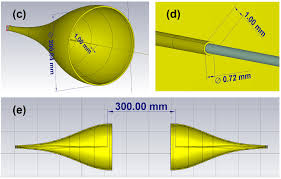




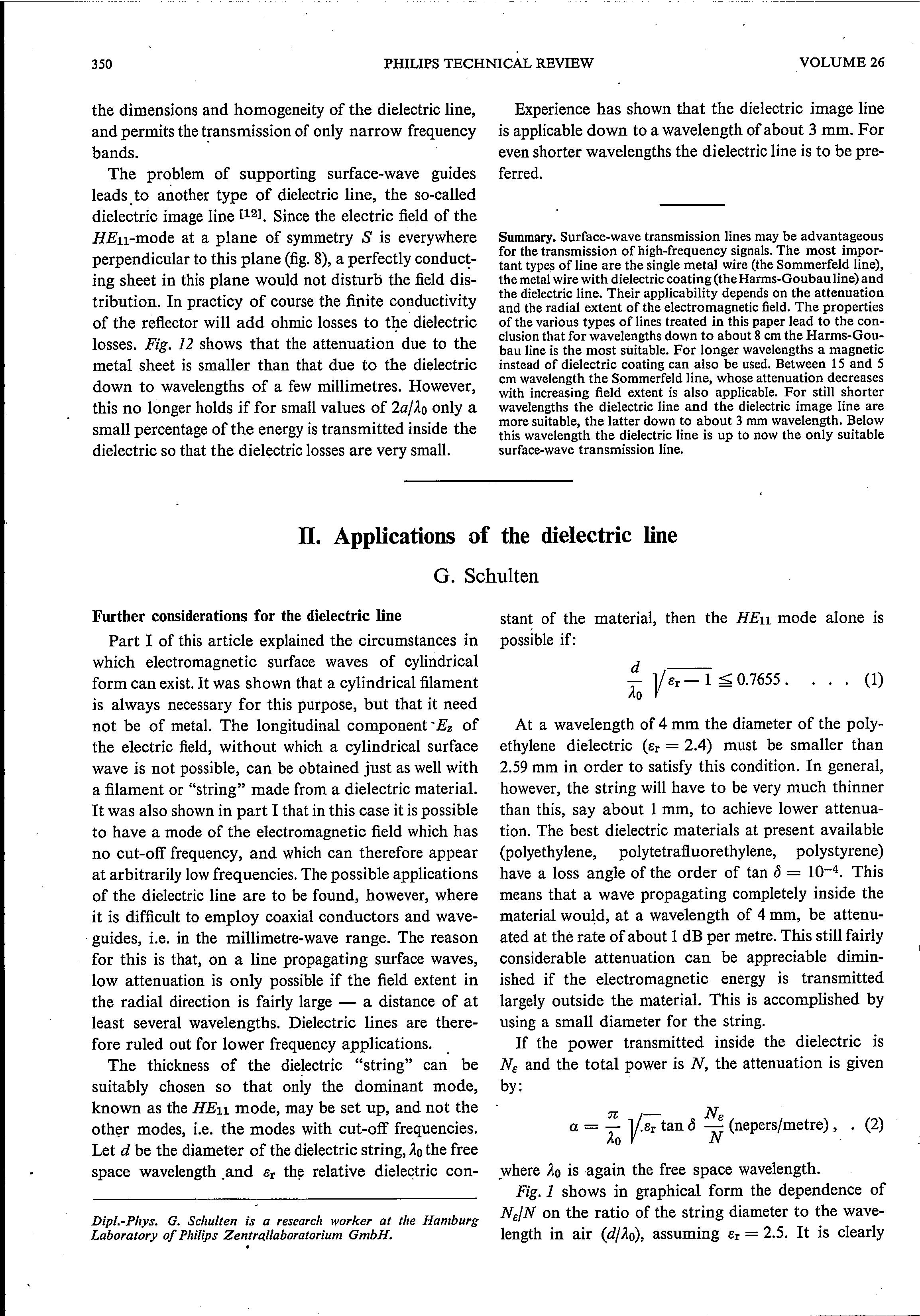







/HTML/20 Bedini_files/bigguy1.jpg)





















